Twelve Kitchen Items You Really Need to Throw Away
January is the month we all like to organize. So, let’s talk about the things you forget to organize and toss, like these twelve kitchen items you need to throw away.
But never do. Why? Because, like me, you are too busy reading about how to organize your pantry or linen closet. This year, I will focus on the things I need to organize, but keep forgetting to do every year. This is going to be fun.
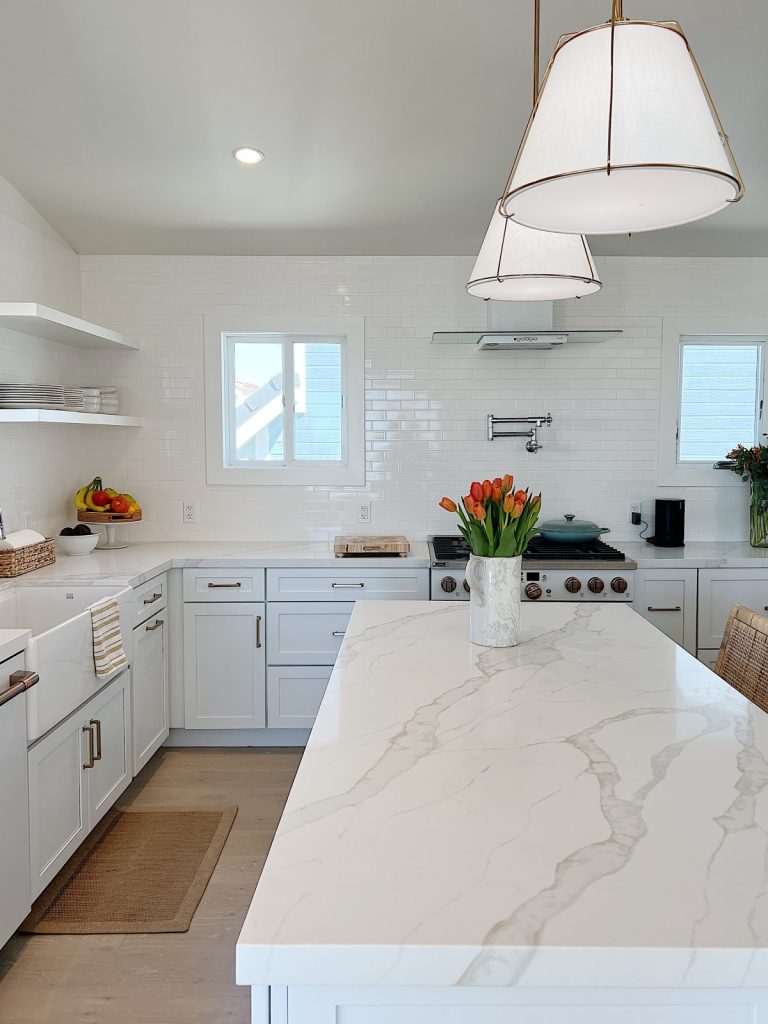


12 Kitchen Items You Need to Throw Away
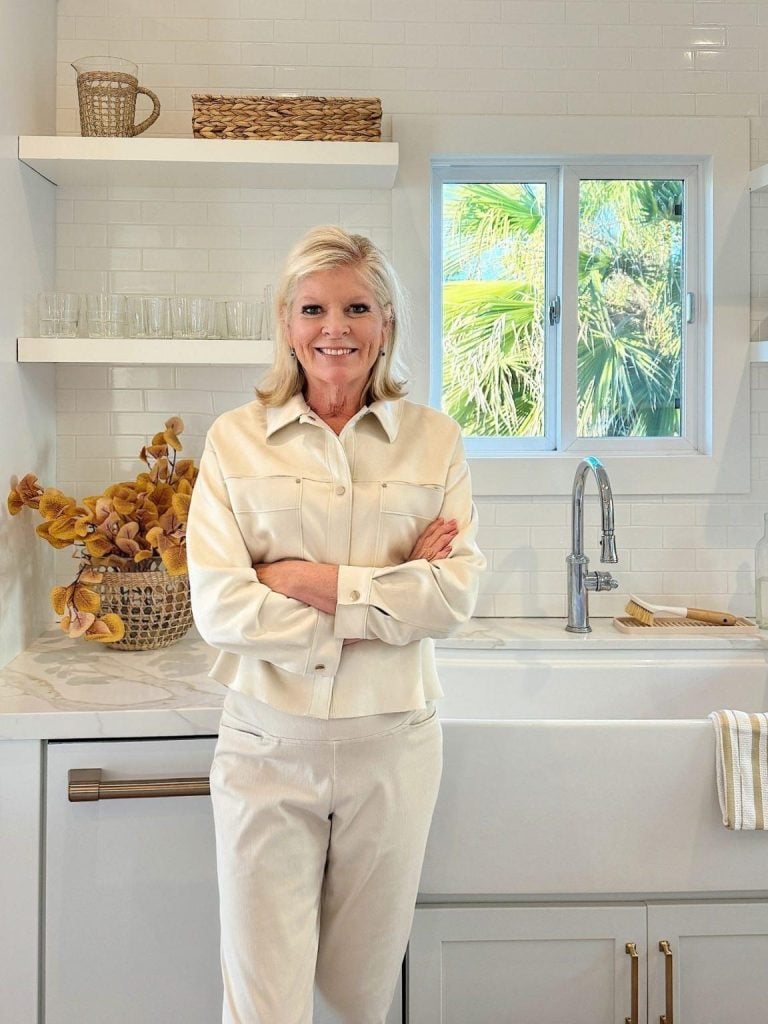
The kitchen is often the heart of the home, a space where meals are made, memories are shared, and creativity thrives. But let’s face it: even the most organized kitchens can become cluttered with outdated, worn-out, or simply unnecessary items.
You might notice all of these photos were taken in the kitchen at our beach house. And yes, I am guilty of having all 12 items mentioned here in our kitchen!
Holding on to these items can not only waste space but also affect your cooking and your home’s cleanliness.
Here’s a list of 12 kitchen items you probably need to toss—and why it’s time to let them go.
1. Warped Plastic Containers
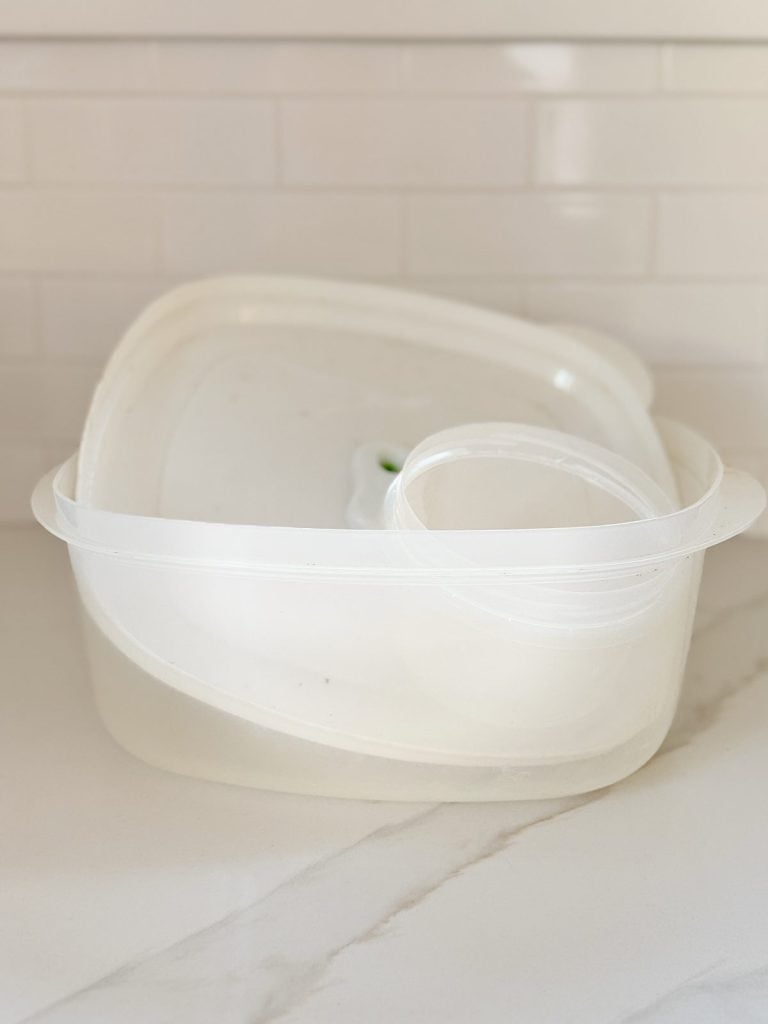
We all have that stack of mismatched plastic containers with lids that never seem to fit. If they’re warped, stained, or smell like last week’s leftovers, it’s time to say goodbye. Not only are they unsightly, but some old plastic containers can leach harmful chemicals into your food when reheated. Invest in a new set of BPA-free plastic or glass containers that are safer and more durable.
I may sometimes use affiliate links on this blog, which means I earn a small commission if you purchase through the link. The price will be the same whether you use the affiliate link or go directly to the vendor’s website using a non-affiliate link.
2. Dull Knives
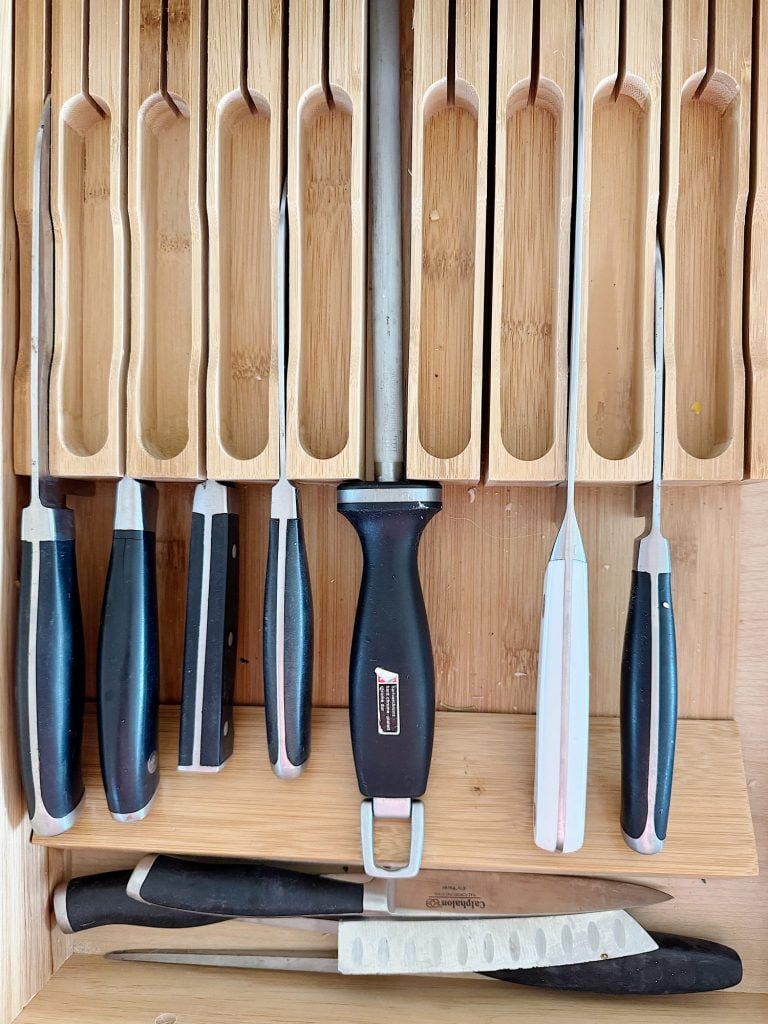
A dull knife is more dangerous than a sharp one because it requires more pressure to cut, increasing the likelihood of slips and accidents. If your knives are beyond sharpening or have broken handles, replace them. A quality chef’s knife and a sharpening tool will make cooking safer and more enjoyable.
3. Chipped or Cracked Dishes
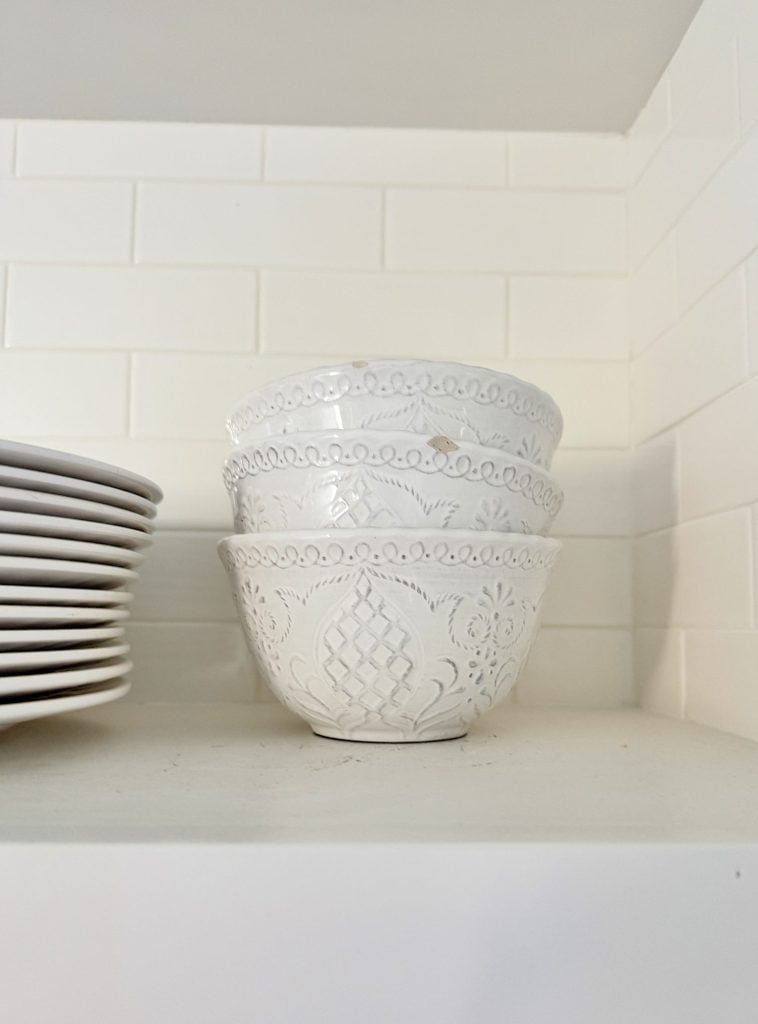
Holding onto chipped plates or cracked bowls might seem harmless, but they can harbor bacteria and even pose a safety risk if shards break off. Additionally, eating from damaged dishes detracts from the joy of a well-set table. Donate what’s still in good condition and recycle the rest.
4. Old Spices
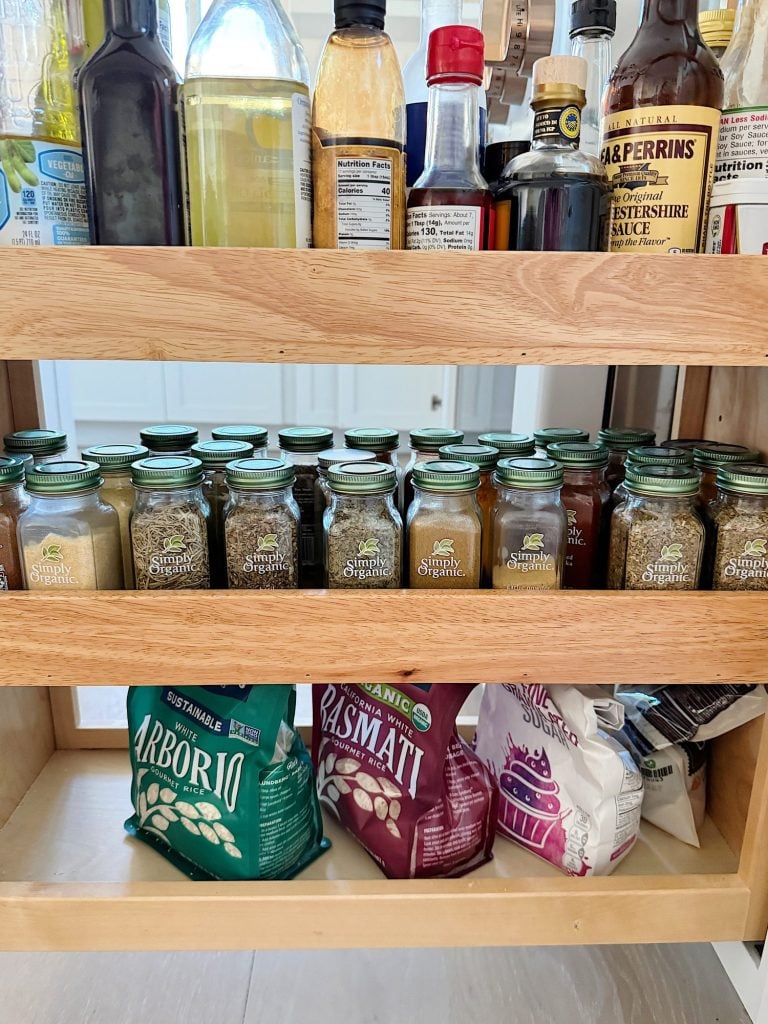
Did you know spices lose their potency over time? If you can’t remember the last time you used that jar of paprika or oregano, it’s likely past its prime. I once found a spice that was over ten years old. Spices should generally be replaced every 1–3 years. Keep your spice rack fresh by buying smaller quantities and labeling each with the purchase date.
5. Nonstick Pans with Scratches
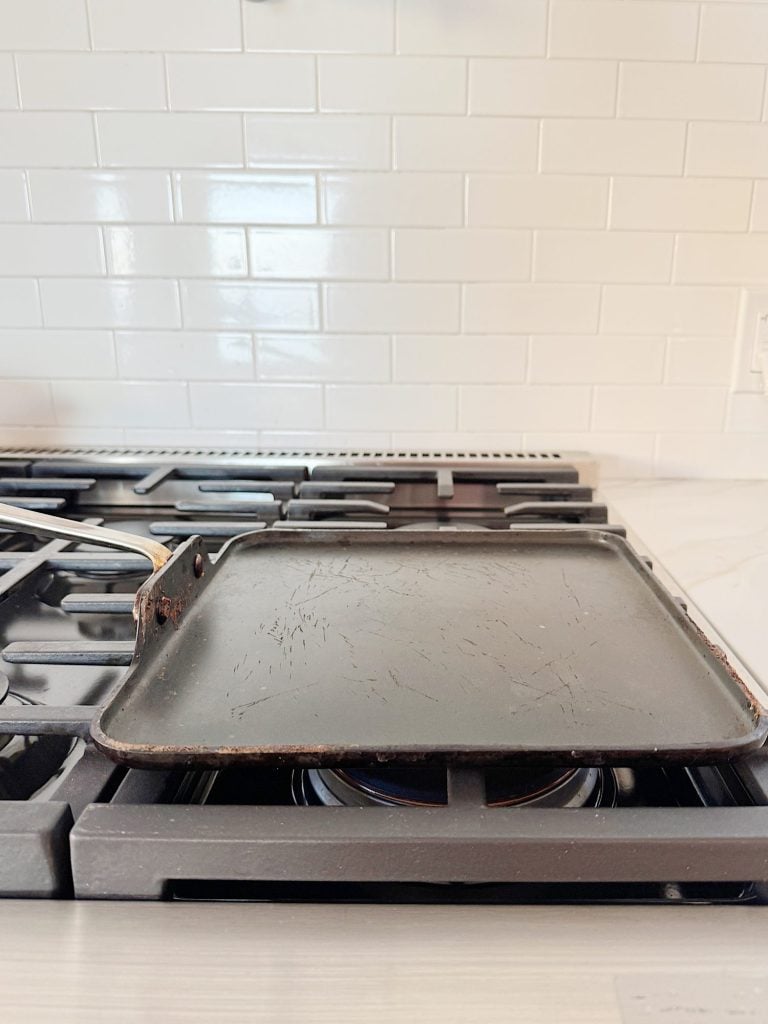
Nonstick cookware is convenient, but once the coating scratches or peels, it’s no longer safe to use. Scratched nonstick pans can release harmful chemicals into your food. Replace them with newer nonstick options, or consider cast-iron or stainless steel alternatives.
6. Worn-Out Dish Towels
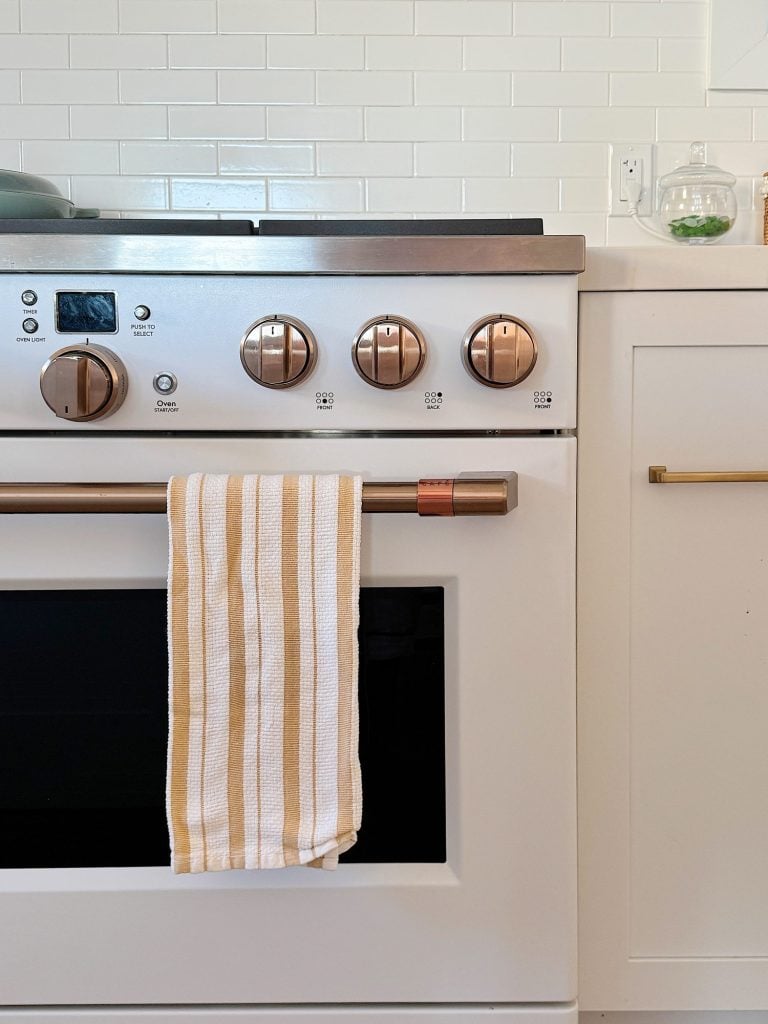
Dish towels see frequent use, and over time they can become stained, threadbare, and less absorbent. If your dish towels have seen better days, use them as cleaning rags and treat yourself to a fresh set.
7. Unnecessary Gadgets
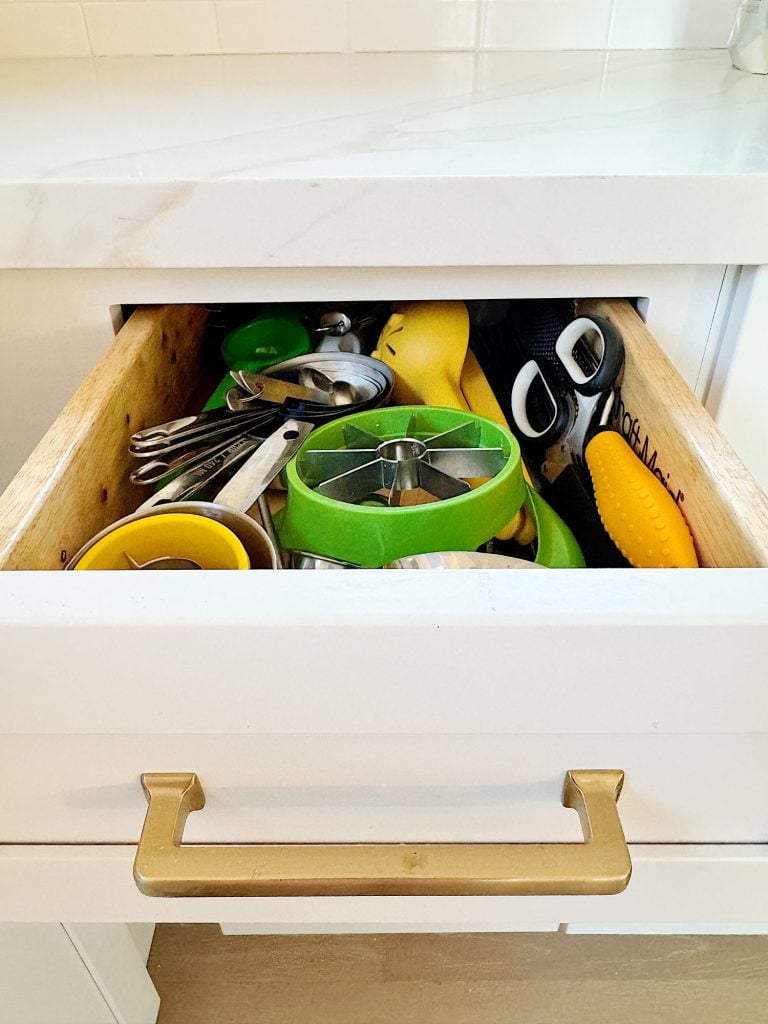
How many single-use gadgets do you have cluttering your drawers? Egg slicers, banana cutters, and avocado pit removers might seem fun at first, but they often end up gathering dust. Pare down to multipurpose tools like a sharp knife or a quality grater.
8. Expired Pantry Staples
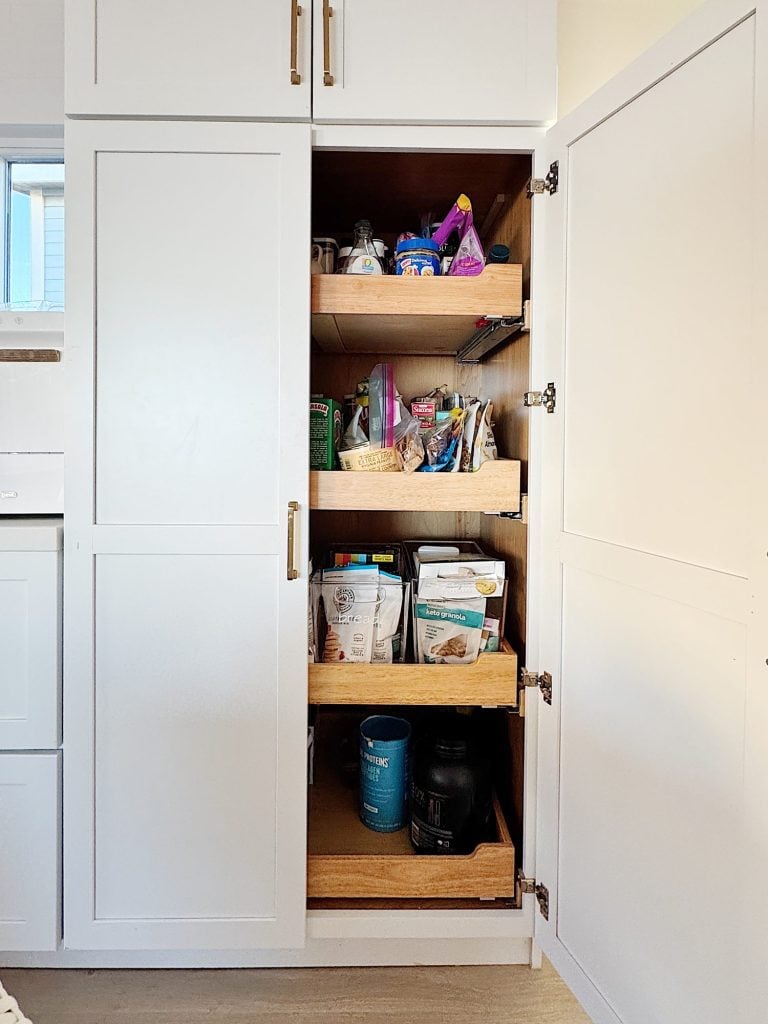
It’s easy to overlook old items in the pantry. Check your shelves for expired flours, baking powders, and canned goods. Consuming expired food can affect the taste and quality of your meals. Clear out expired items and organize your pantry so you can easily see what you have.
9. Cracked Cutting Boards
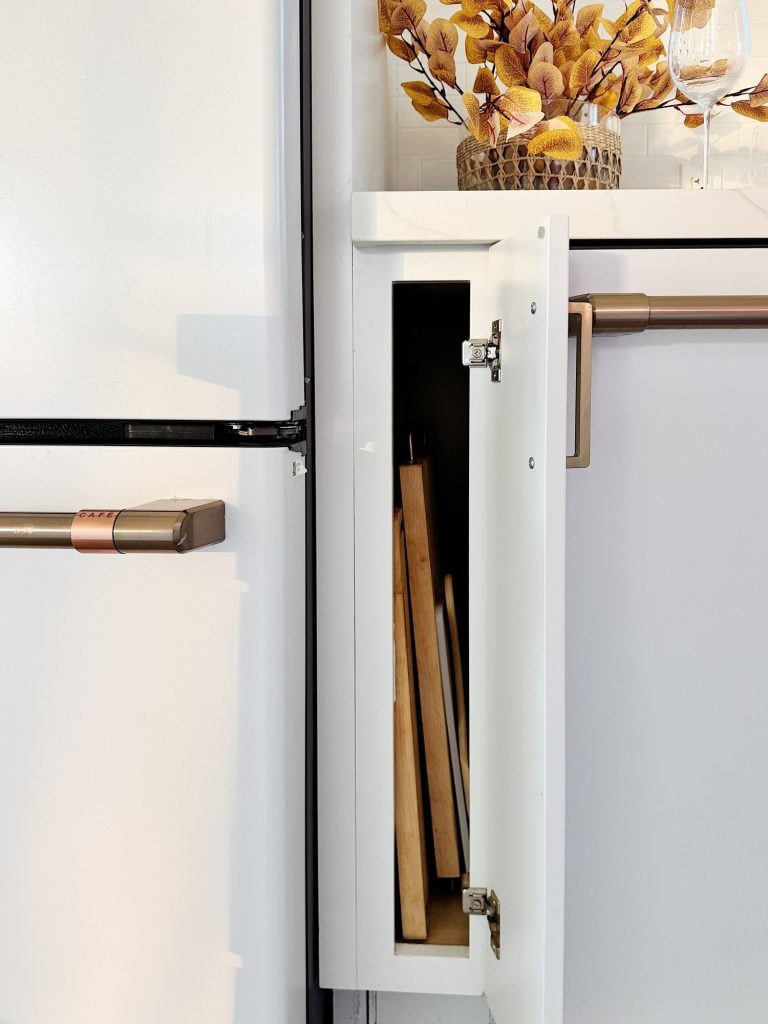
Cutting boards take a lot of wear and tear, but cracks can trap bacteria and make them unsanitary. Wooden boards with deep cuts or plastic boards with stains should be replaced. To extend the life of your cutting boards, sanitize them regularly and oil wooden boards to prevent drying out.
10. Old Water Bottles and Travel Mugs
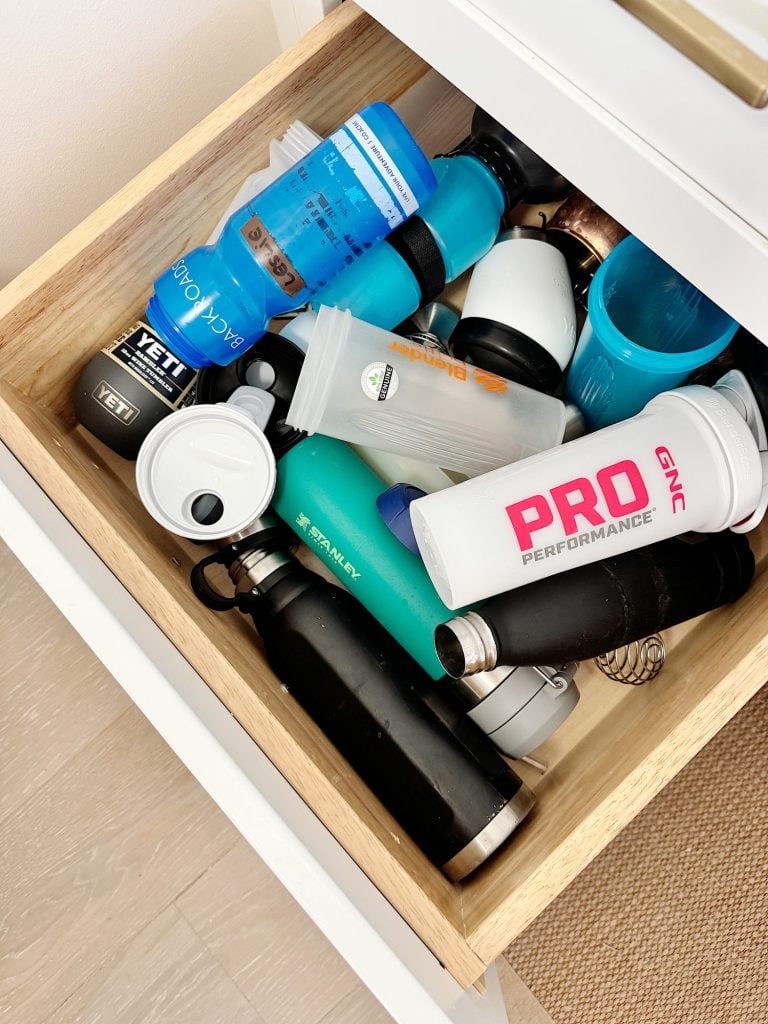
Reusable water bottles and travel mugs are great for the environment, but over time, they can become scratched, stained, or smelly. If yours are past their prime or missing parts, recycle them and invest in durable, easier-to-clean replacements.
11. Unused Small Appliances
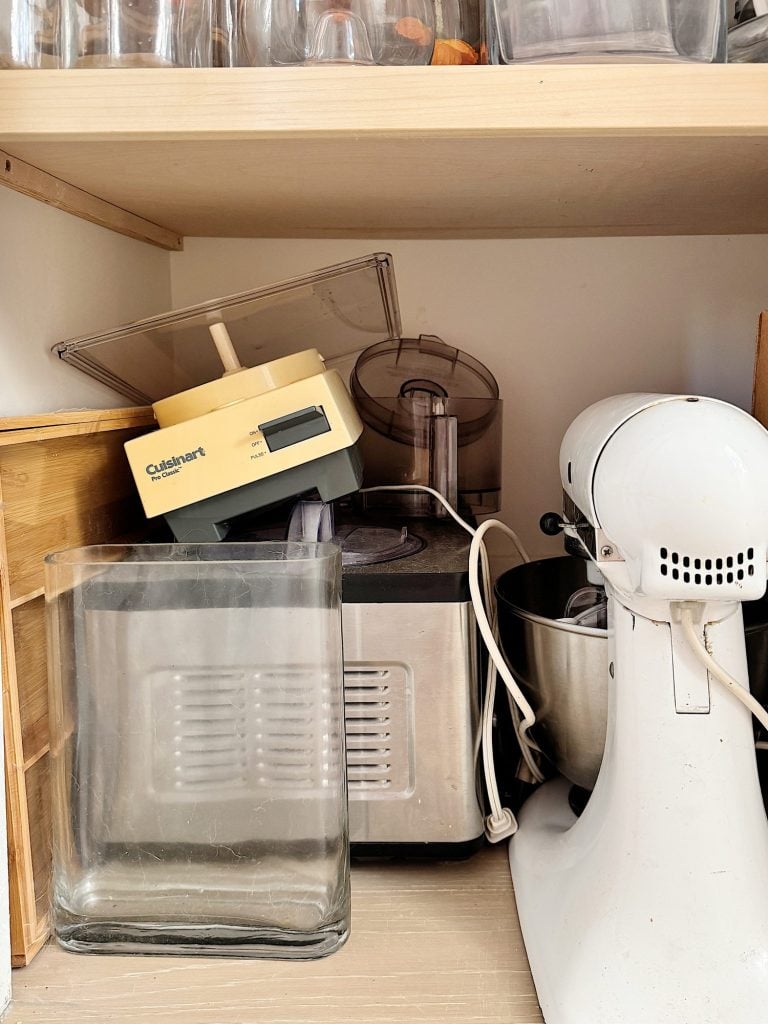
Do you have a bread machine or a yogurt maker that you’ve only used once? Small appliances take up valuable counter and cabinet space. If you haven’t used an appliance in over a year, it’s time to donate or sell it. Keep only the gadgets you use regularly, like a coffee maker or blender.
The Cuisinart food processor in the photo above was my mom’s and is probably 40 years old. Of course, I can’t let myself throw it away. It’s too sentimental (there are exceptions).
12. Rusty or Broken Utensils
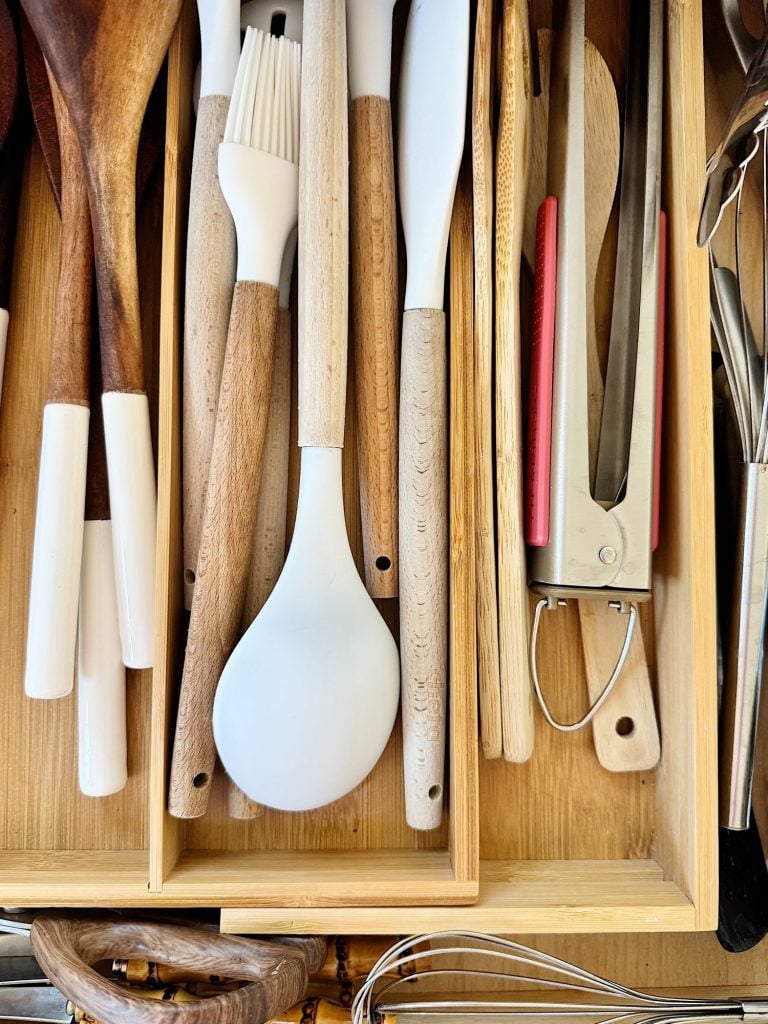
Rusty spatulas, broken tongs, or melted plastic utensils don’t belong in your kitchen. The white spatula is loose, and it drives me crazy every time I use it! These items can be unsafe to use and affect the quality of your cooking. Replace them with high-quality, durable stainless steel or heat-resistant silicone options.
How to Let Go
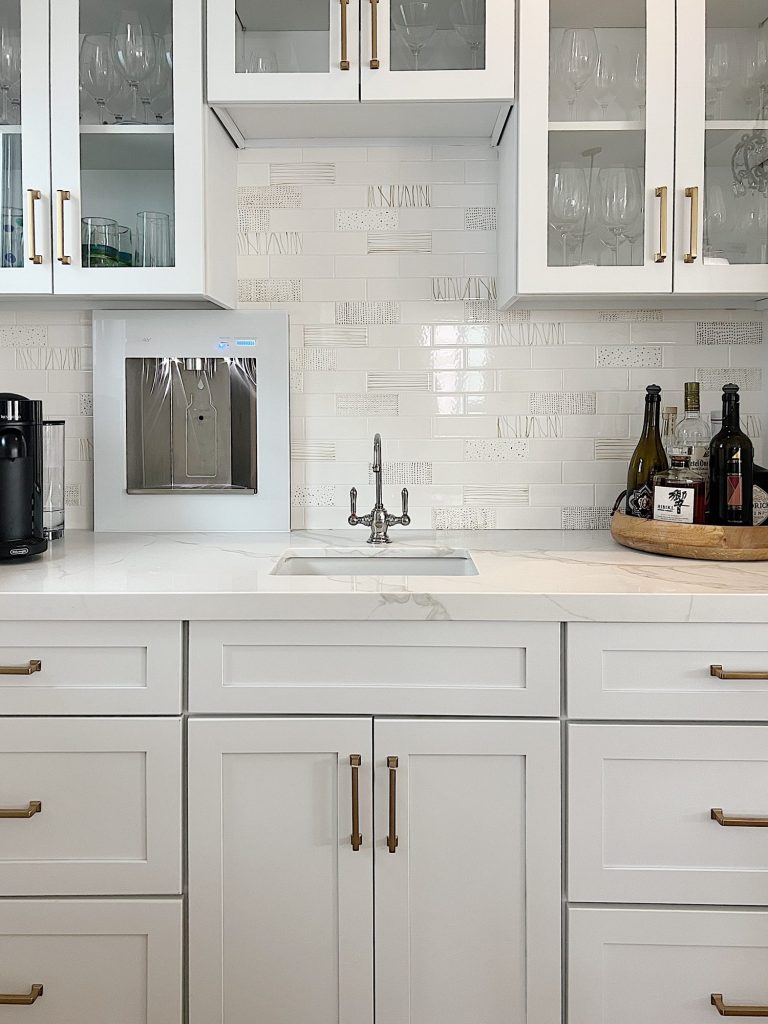
Decluttering your kitchen can feel overwhelming, especially if you’re attached to specific items. Trust me, I know. Here are some tips to make the process easier:
- Take It One Area at a Time: Focus on one section of your kitchen, like the pantry, utensil drawer, or cabinet, rather than trying to tackle the whole space at once.
- Ask Yourself Honest Questions: Do I use this regularly? Is it safe and sanitary? Does it bring me joy? If the answer is no, it’s time to let it go.
- Donate or Recycle: Items in good condition can be donated to local shelters or charities. Check whether your area has facilities for recycling kitchenware, such as metal utensils or old pans.
- Organize as You Go: Once you’ve cleared out the clutter, organize what’s left in a way that makes sense for your cooking habits. Storage solutions such as drawer dividers, spice racks, and pantry bins help keep everything tidy.
Letting go will make you feel so much better! For me, it releases stress.
The Benefits of a Decluttered Kitchen
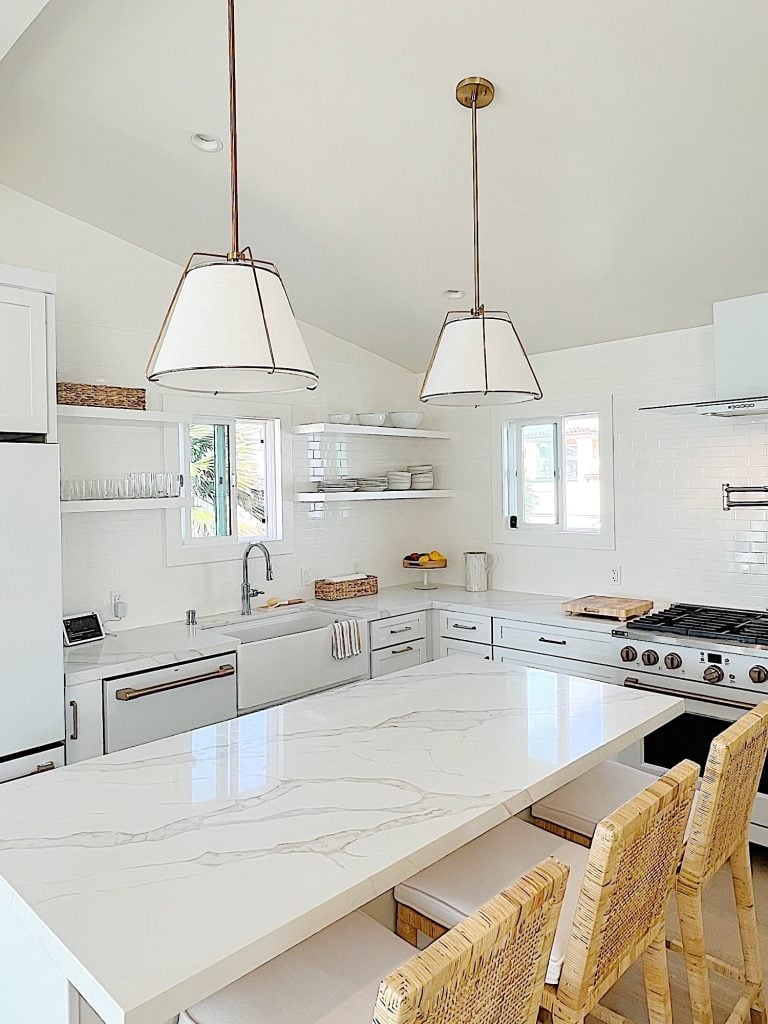
Cleaning out these unnecessary items won’t just free up space; it will transform your kitchen into a more efficient, enjoyable place to cook and gather. With less clutter, you’ll spend less time hunting for tools or ingredients and more time focusing on the joy of cooking.
Keeping only high-quality, well-maintained items will improve your cooking experience and help you confidently create meals.
So, what are you waiting for? Roll up your sleeves, grab a trash bag, and start clearing out your kitchen today. You might be surprised by how liberating it feels to let go of the things you no longer need, and how much more you’ll enjoy your kitchen once you do!
Latest Posts
-
Baked Brie with Jam
Baked brie with jam is a classic and elegant crowd-pleaser appetizer. Today, I am sharing my favorite ways to bake brie. Cheese lovers have enjoyed baked brie with jam for centuries. This dish has many variations which result in a warm, creamy, and indulgent cheese appetizer that is perfect for entertaining or for a special…
-
A View From Above and Sunday Morning Coffee
It’s been one of the busiest weeks ever, and I am happy to be back in my craft room. Did you see my latest addition, which I am calling A View From Above? Thanks for joining me for Sunday Morning Coffee. This is a place to share, learn, explain, dream, and have fun. Season 6…
-
How to Make Beautiful Air Dry Clay Flower Frogs
Flower arranging is an art; having the right tools makes all the difference. If you love fresh flowers in your home but struggle to keep them in place, you’ll love these DIY air-dry clay flower frogs! I recently made a set of these charming flower frogs, which sit on top of a vase or jar…
-
A Spring Flower Pillow DIY – A Handmade Spring
Today, I am sharing a brand-new flower pillow project in my A Handmade Spring series, combining painting, embroidery, and a touch of creative innovation in my craft room. This Spring Flower Pillow is one of those projects that feels special because it is completely customizable, surprisingly easy to make, and absolutely beautiful once finished.
You can pin the image below to your boards on Pinterest (click the Pin button in the top left corner) or follow me on Pinterest!
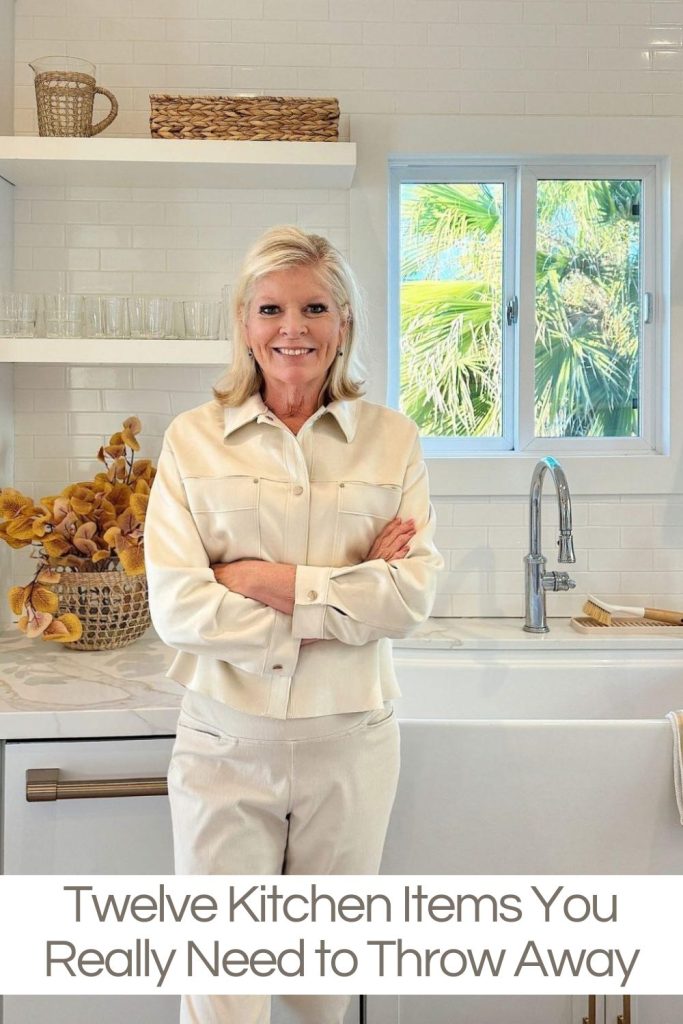
For more real-time updates, follow me on Instagram @My100YearOldHome

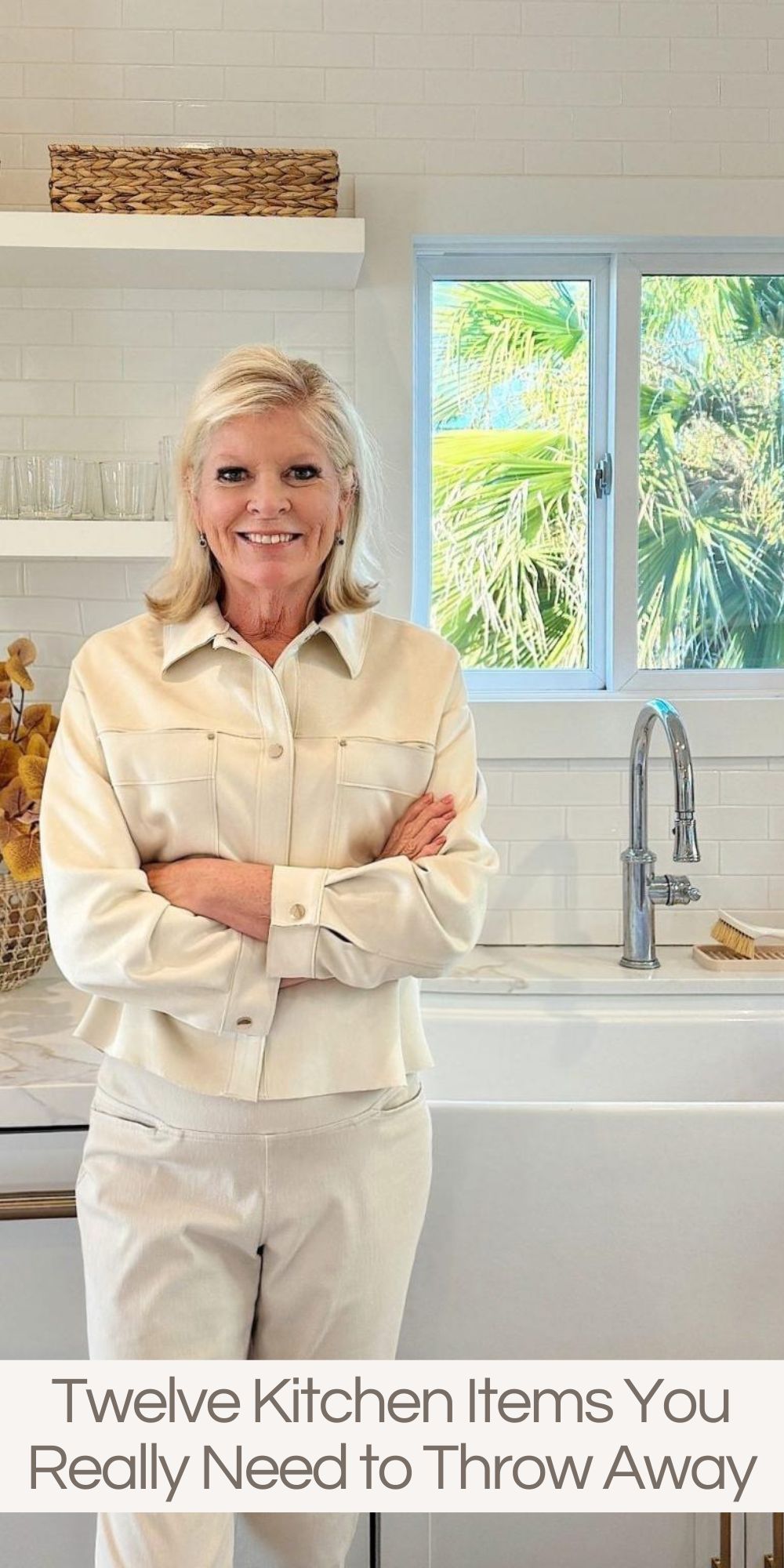
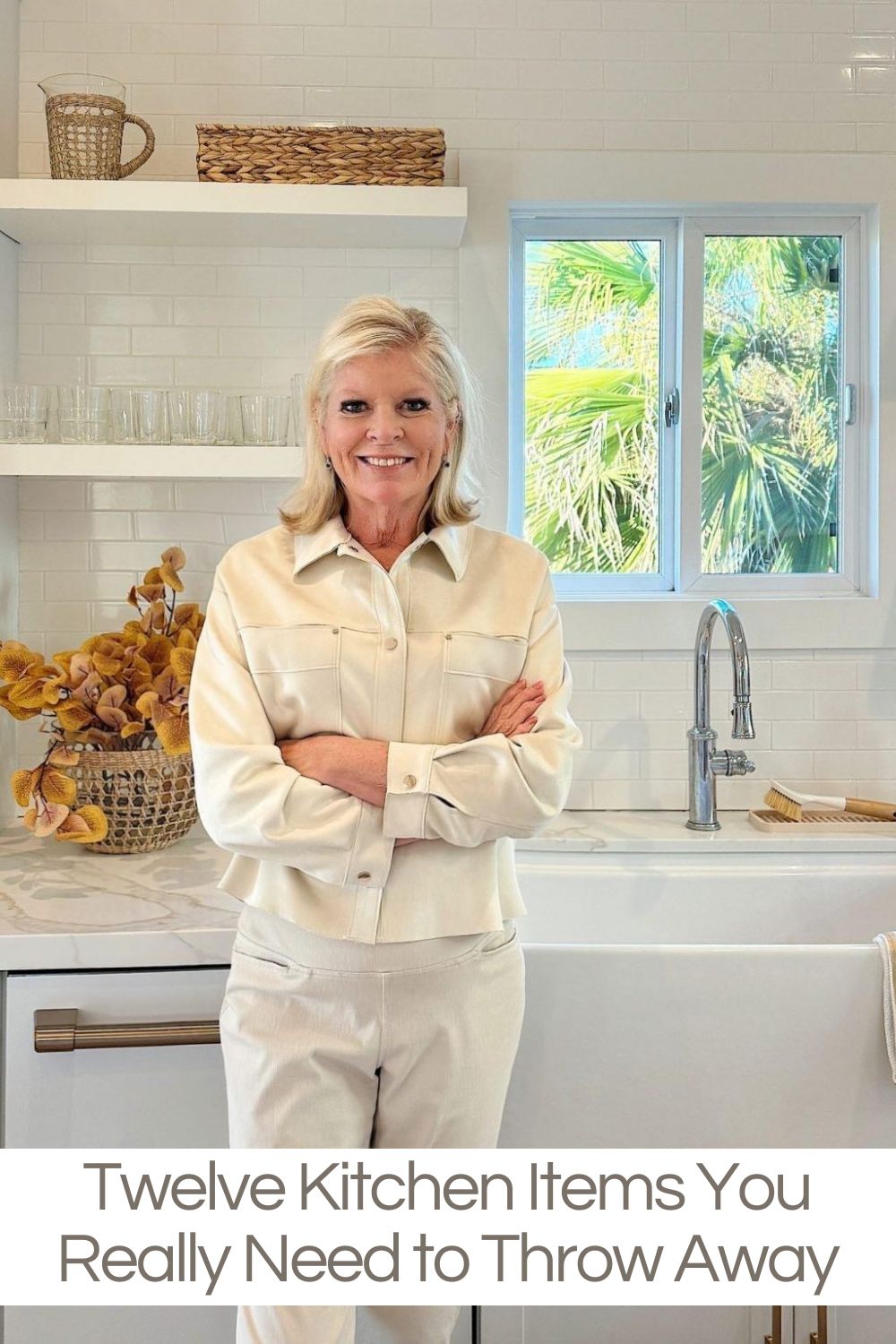
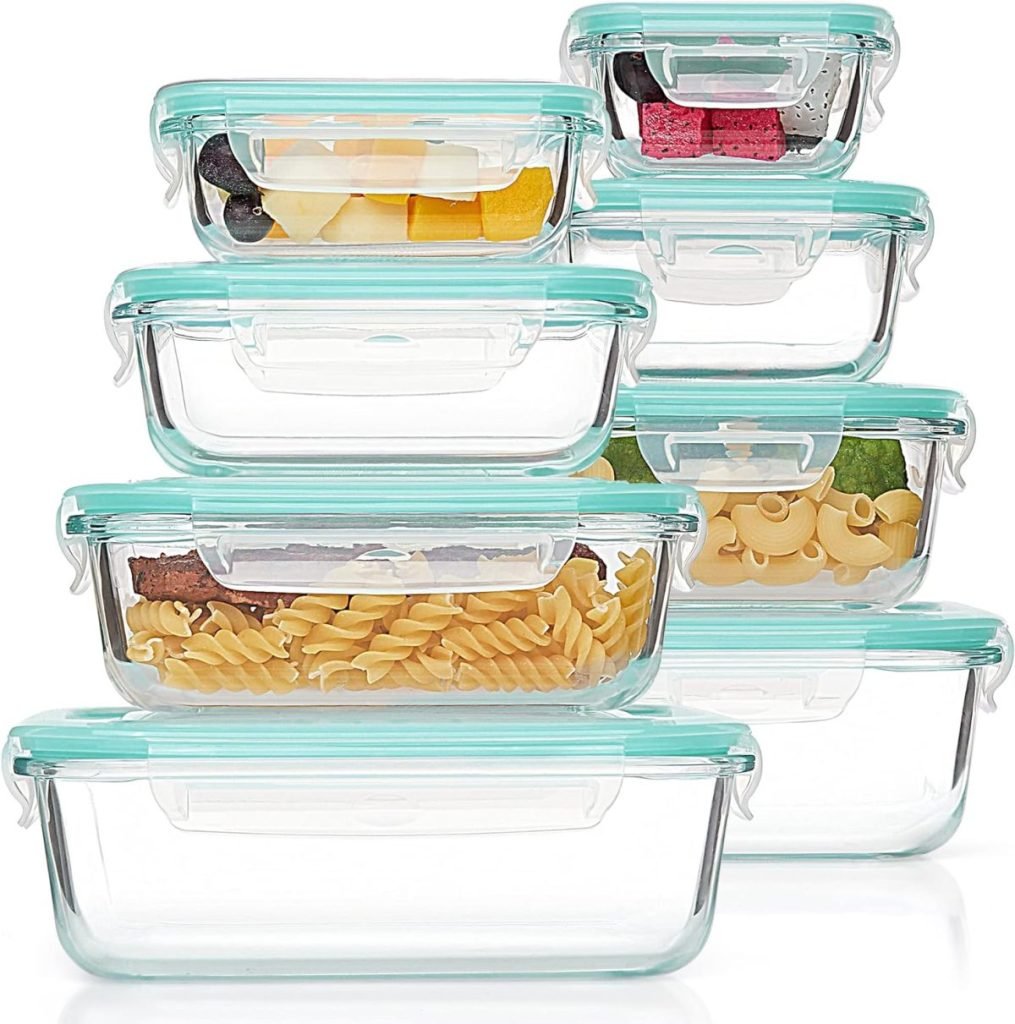
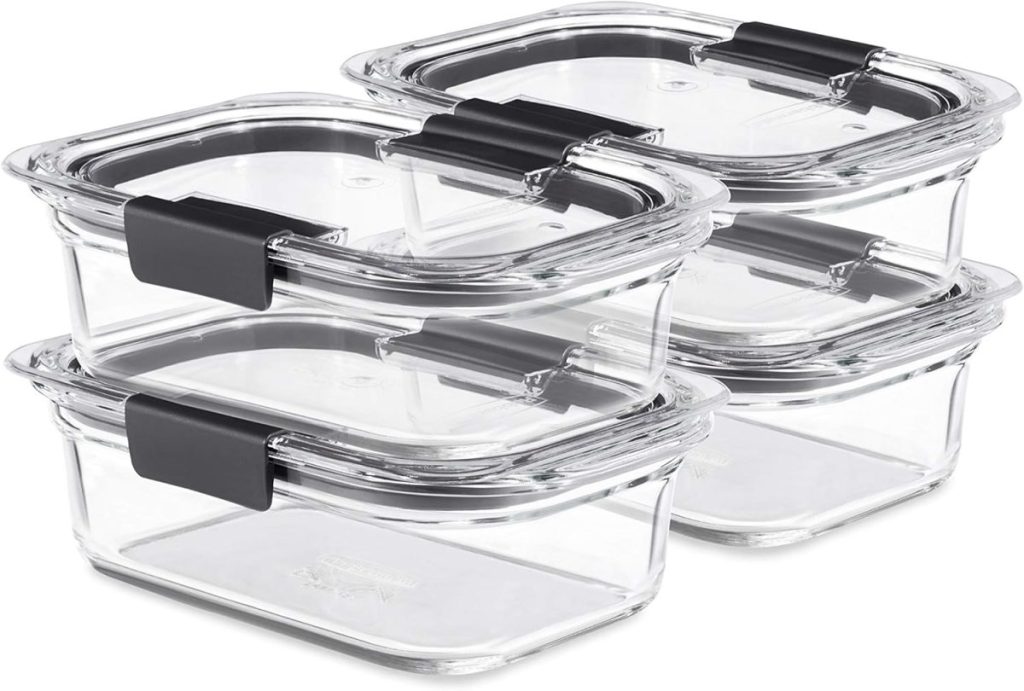
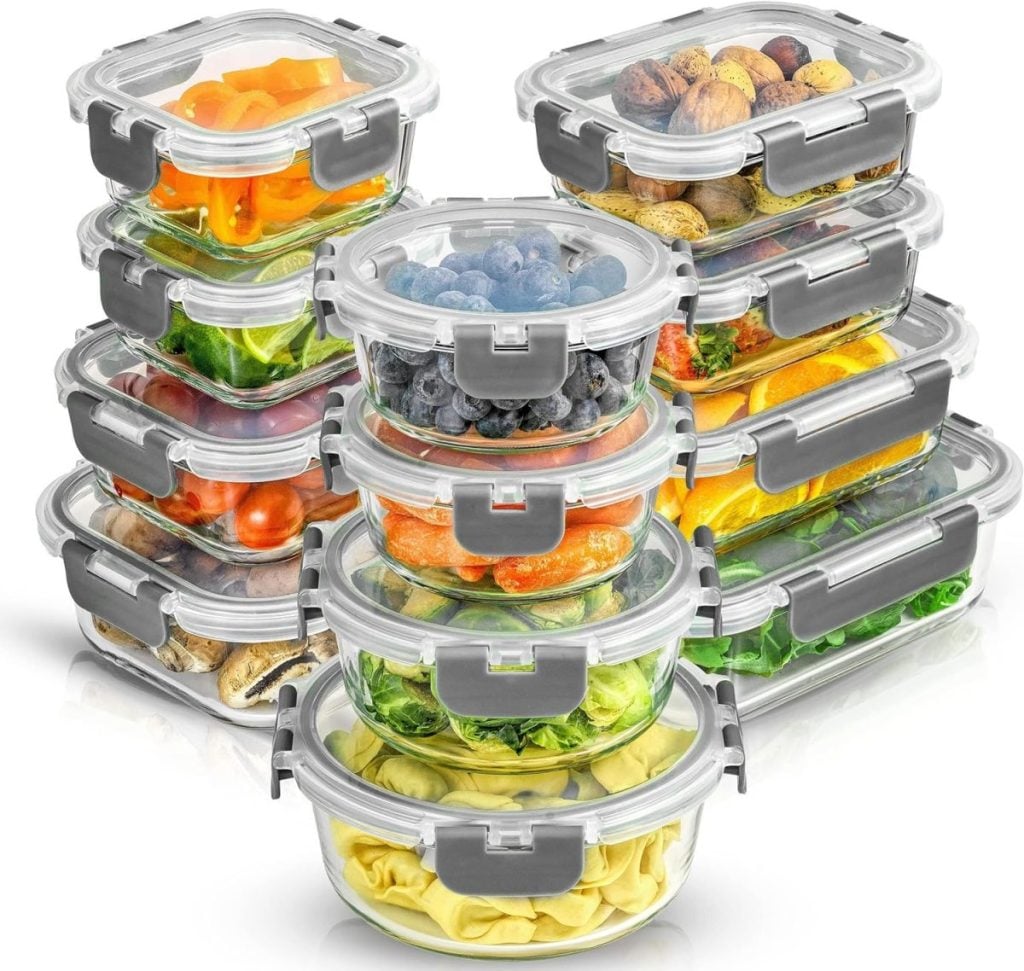
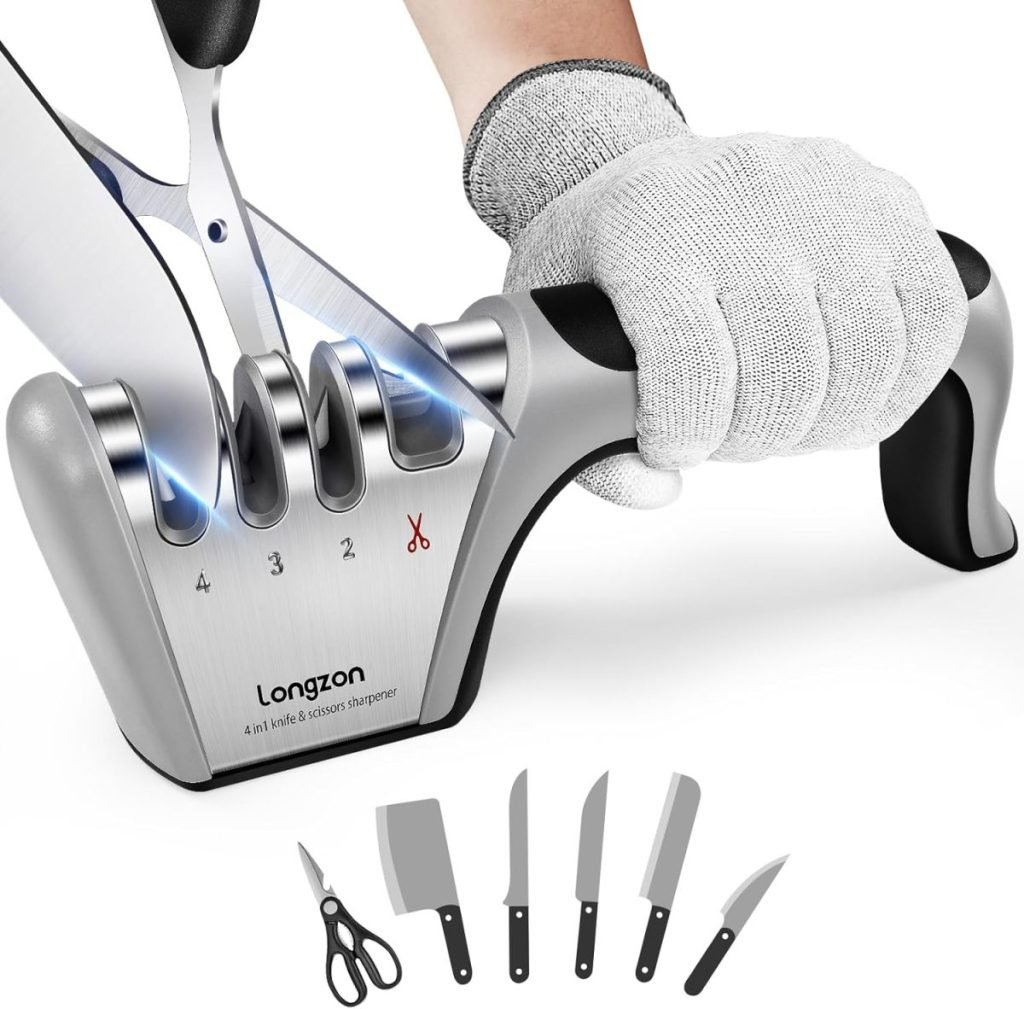

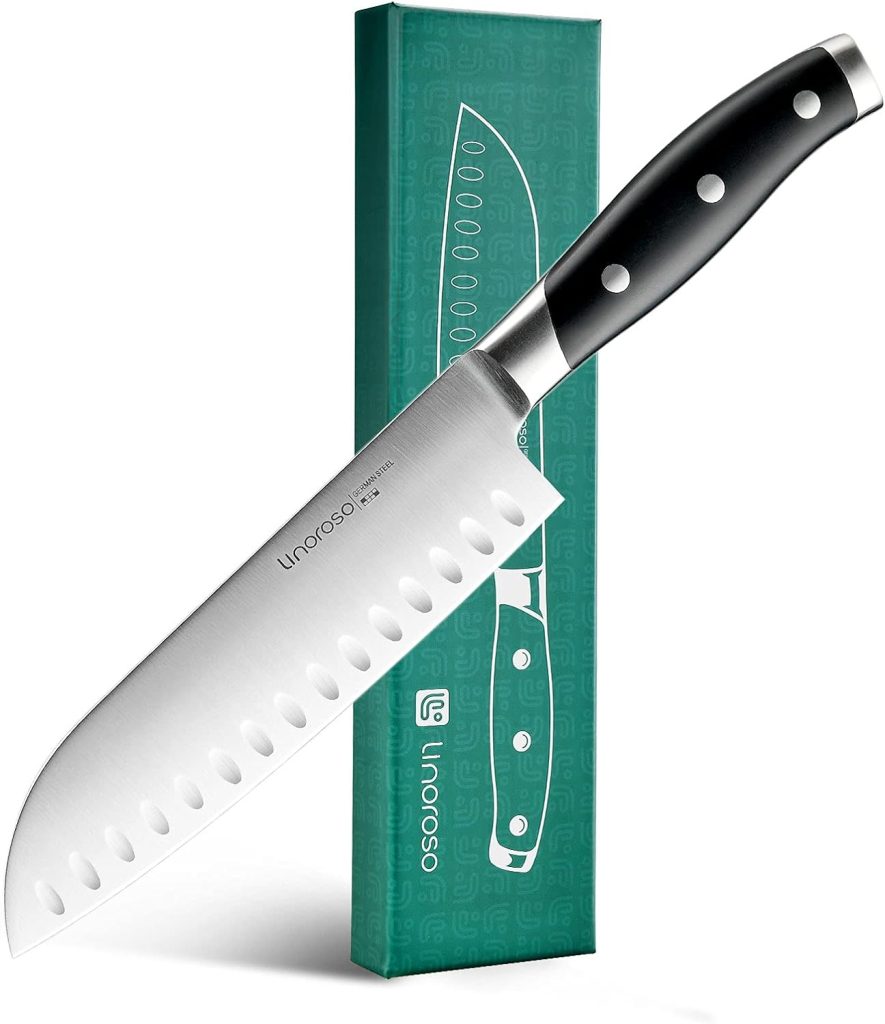
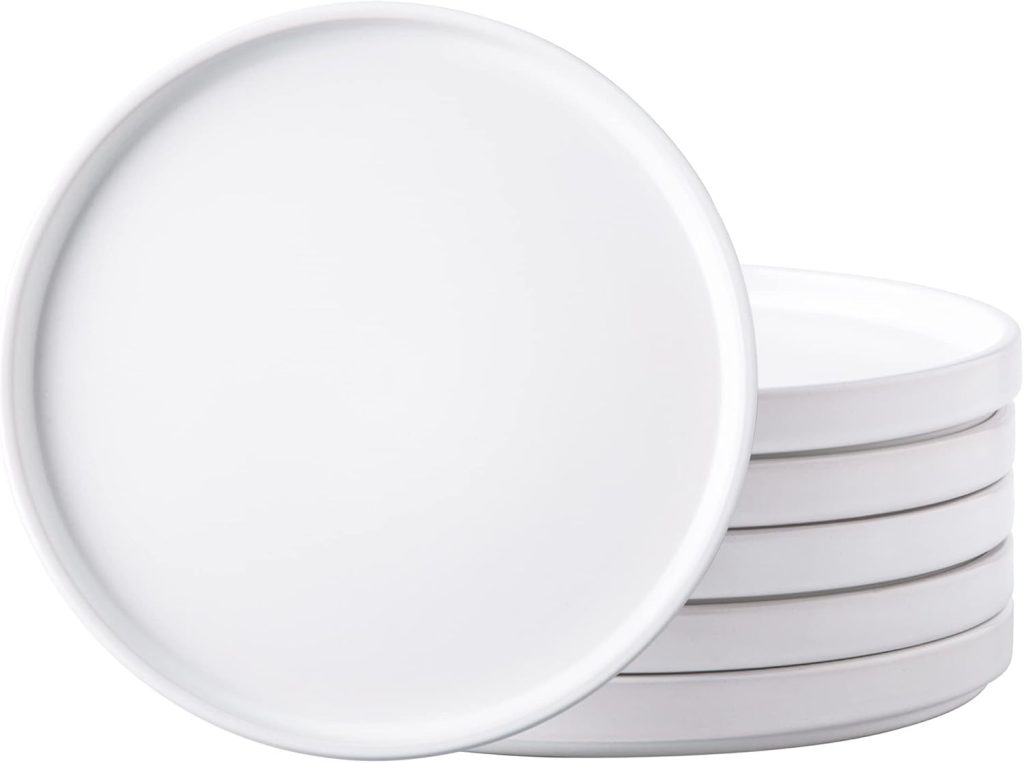
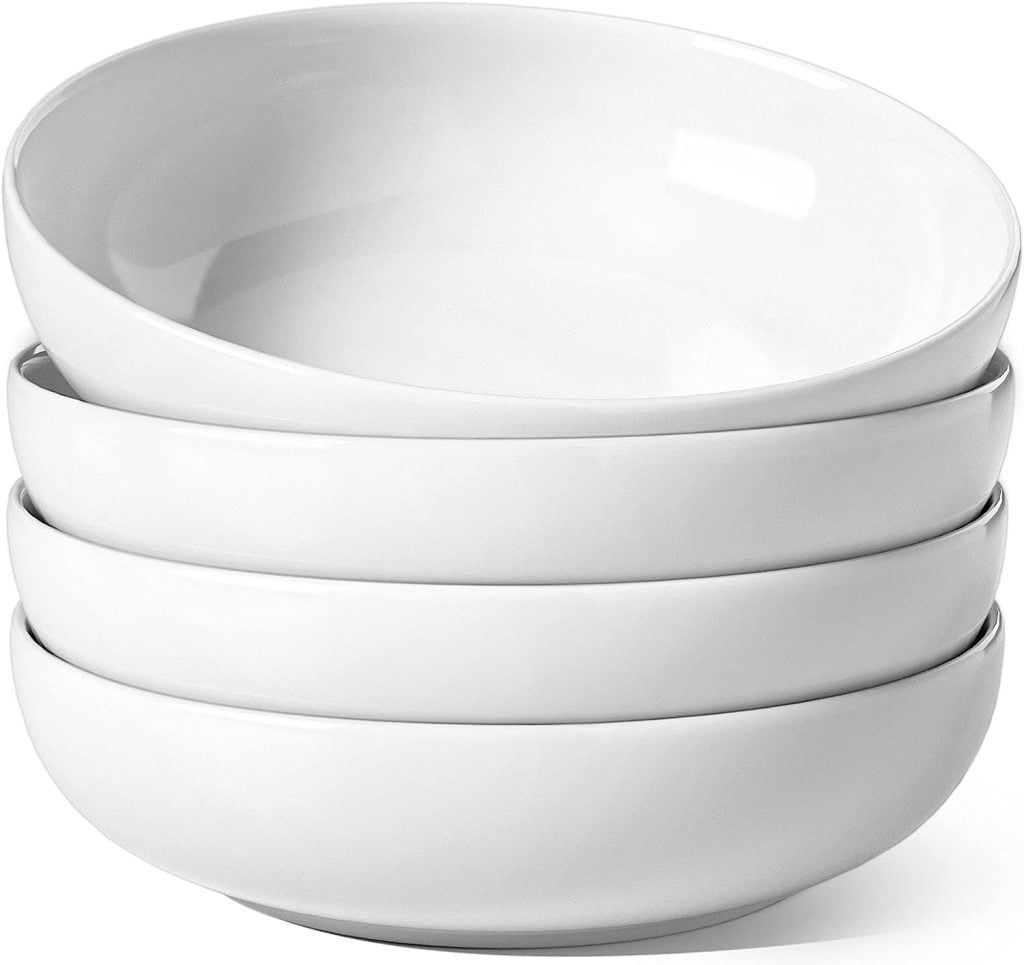
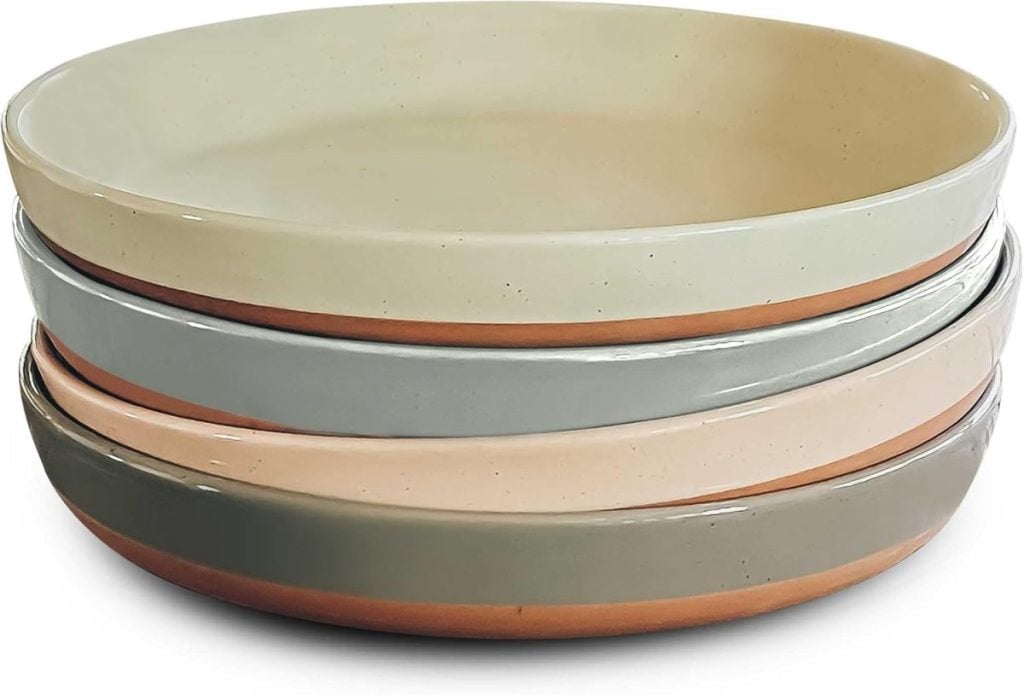
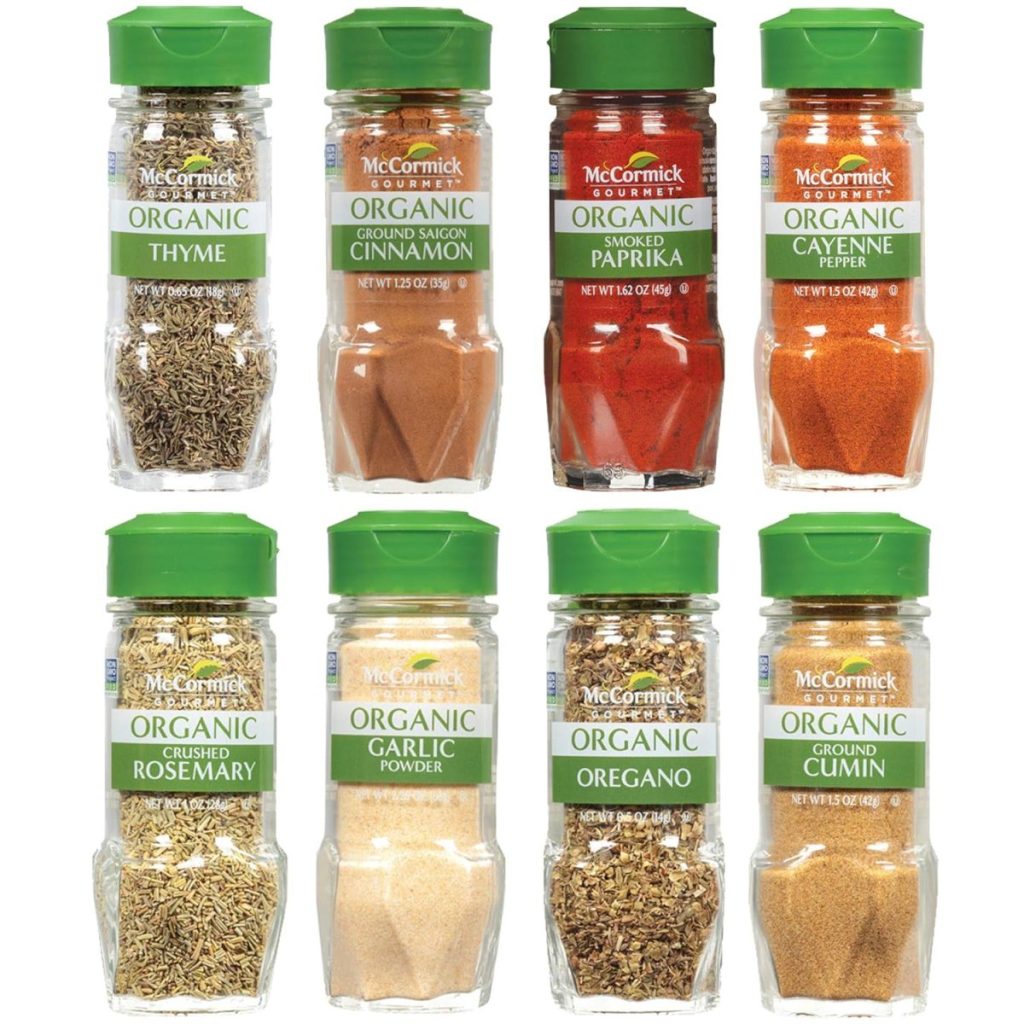
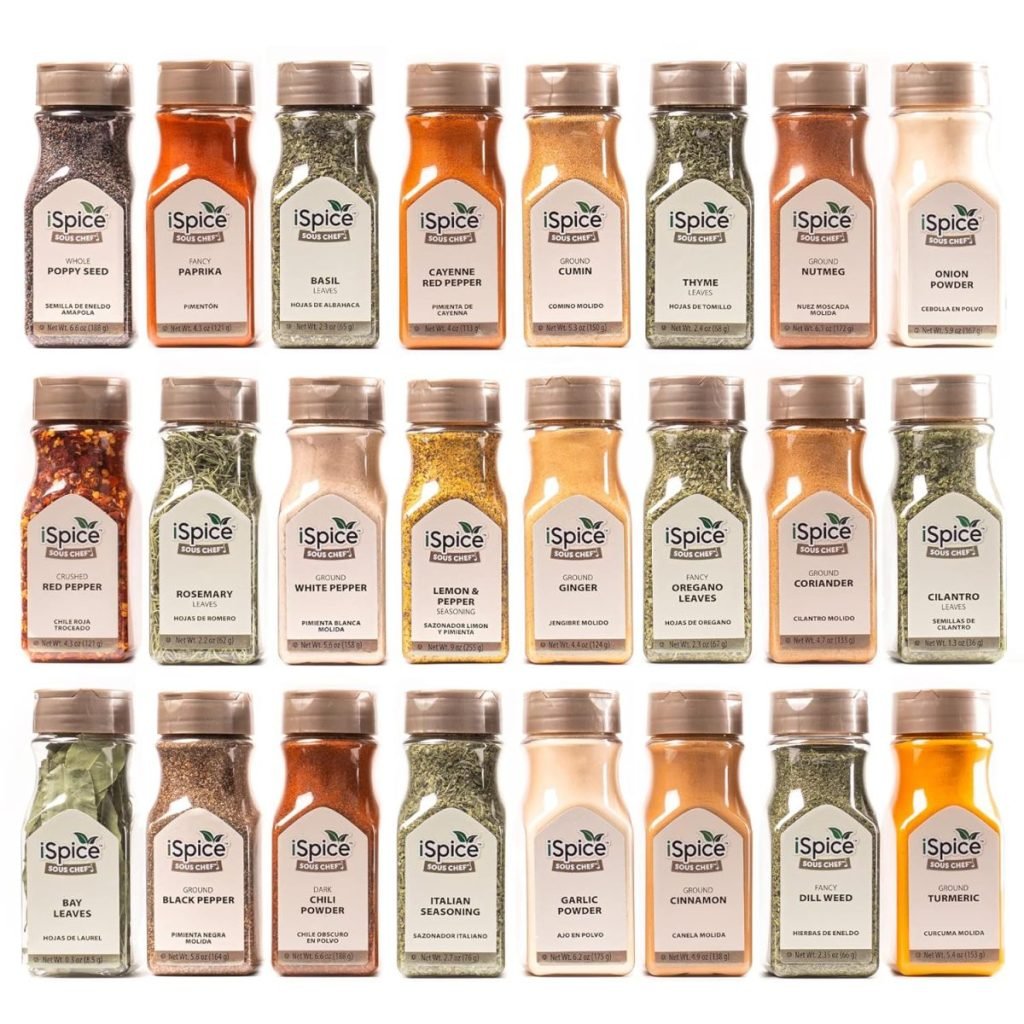
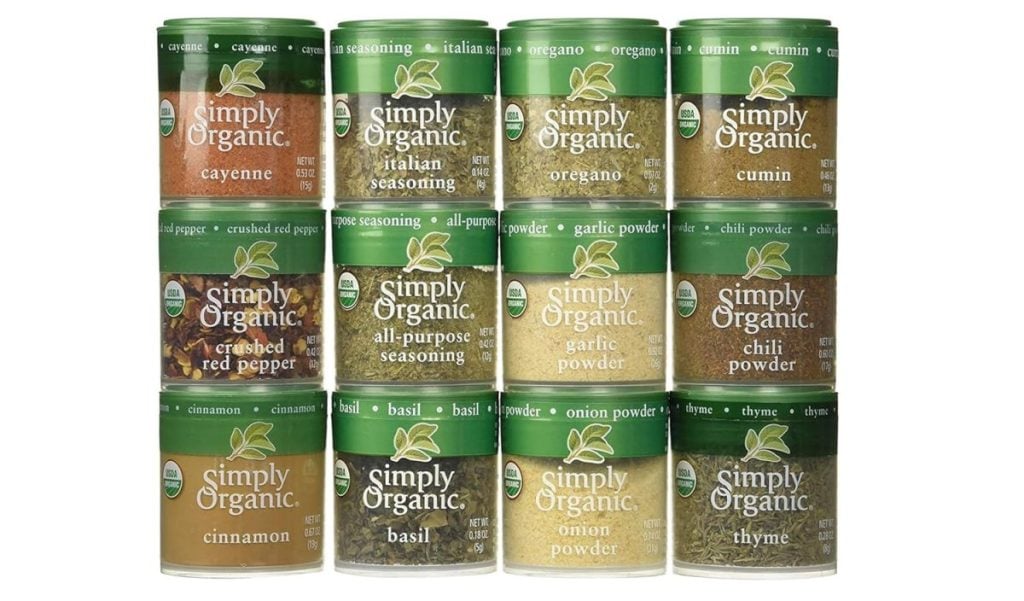
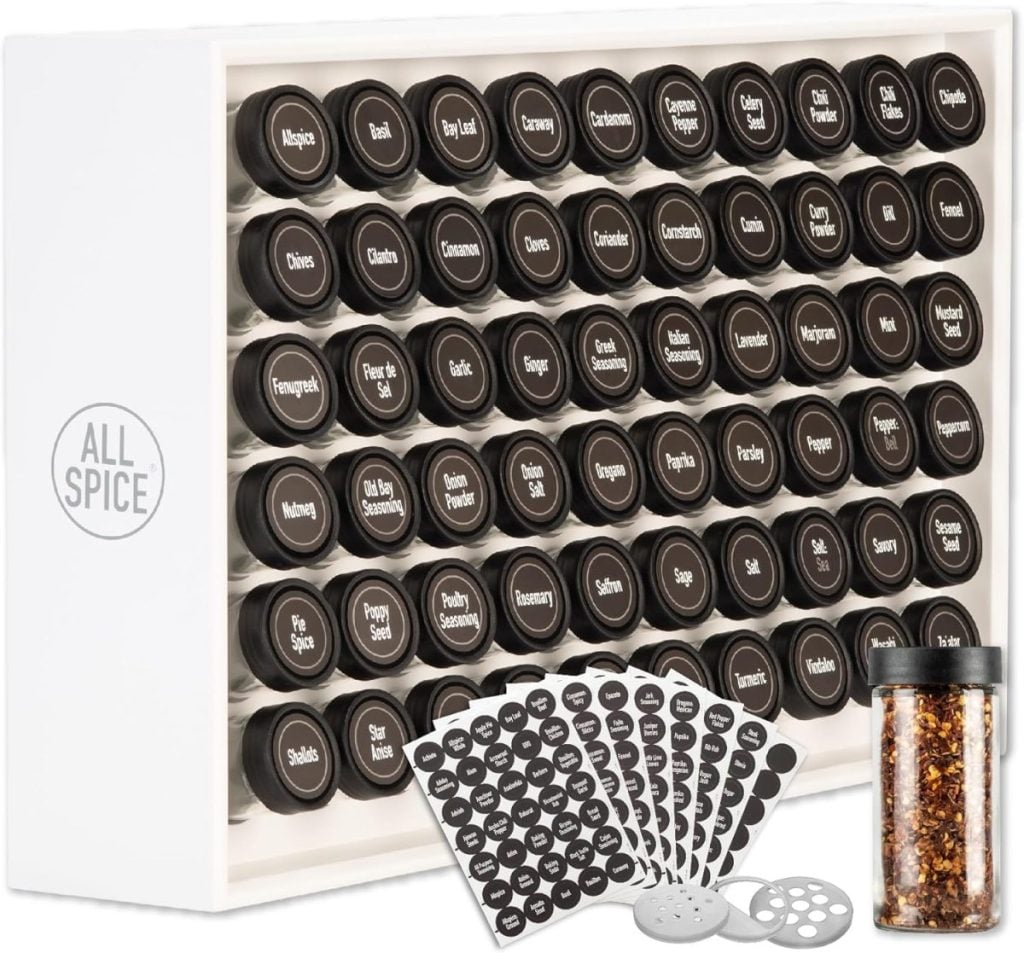
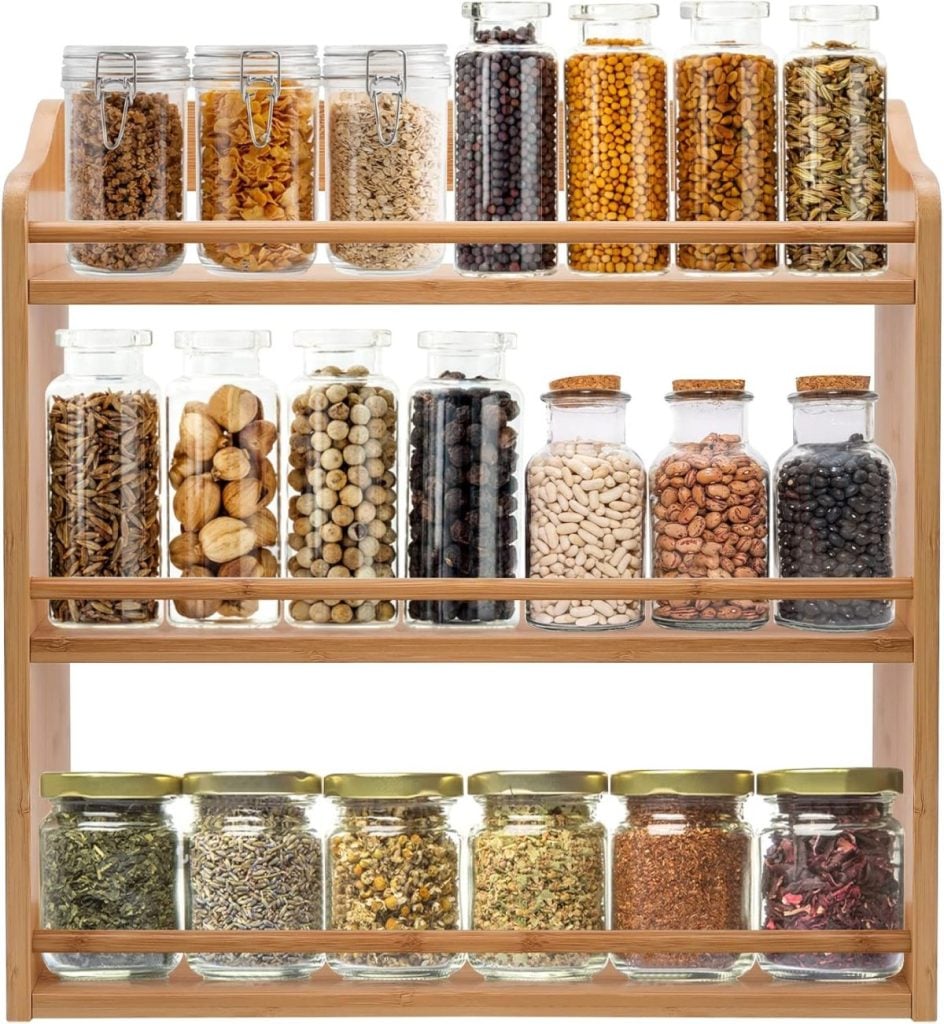
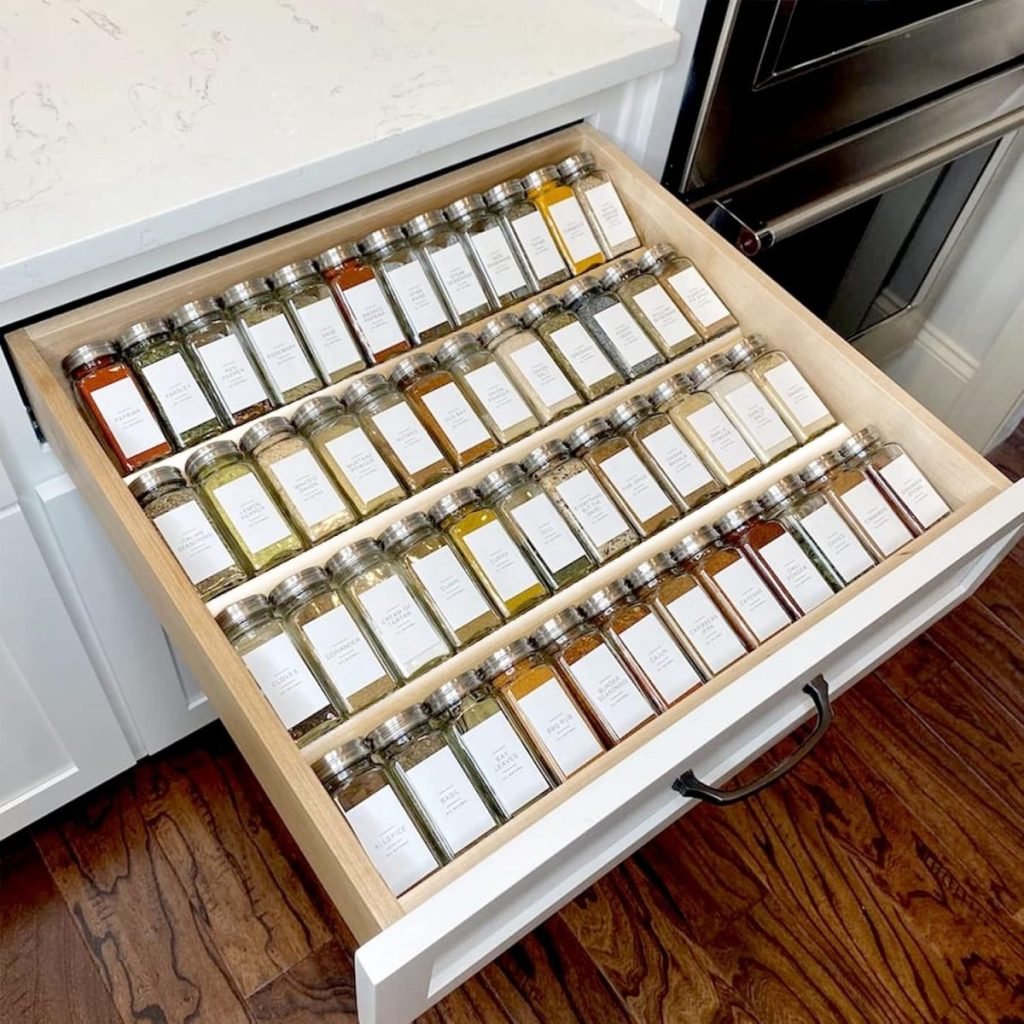
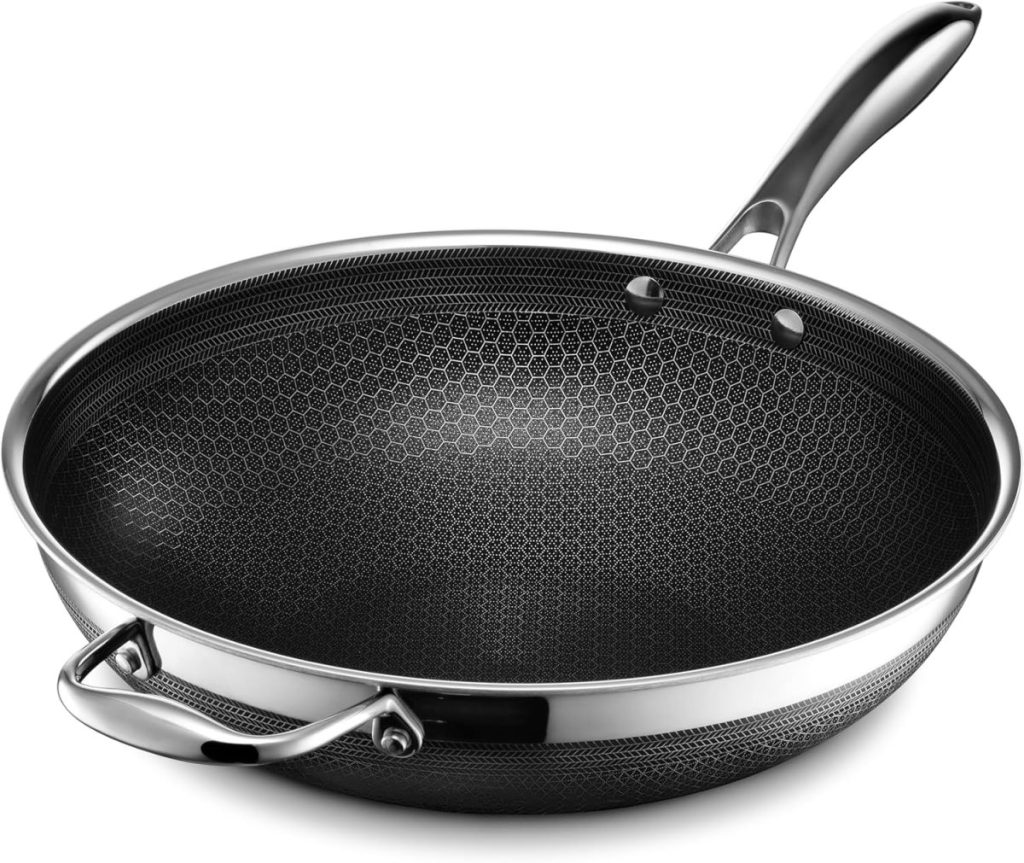
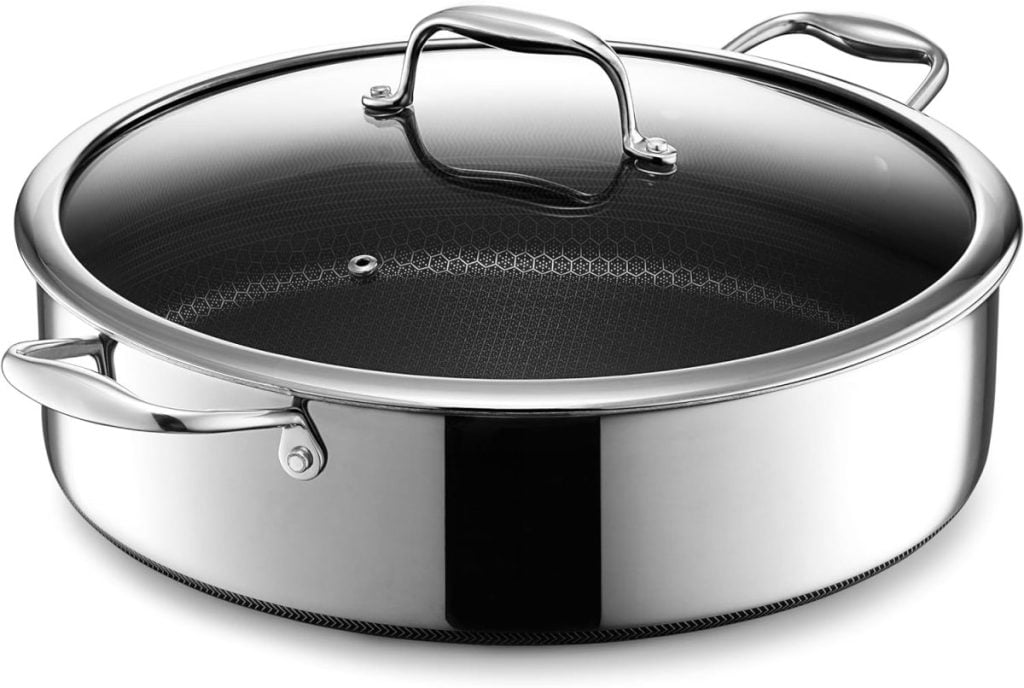
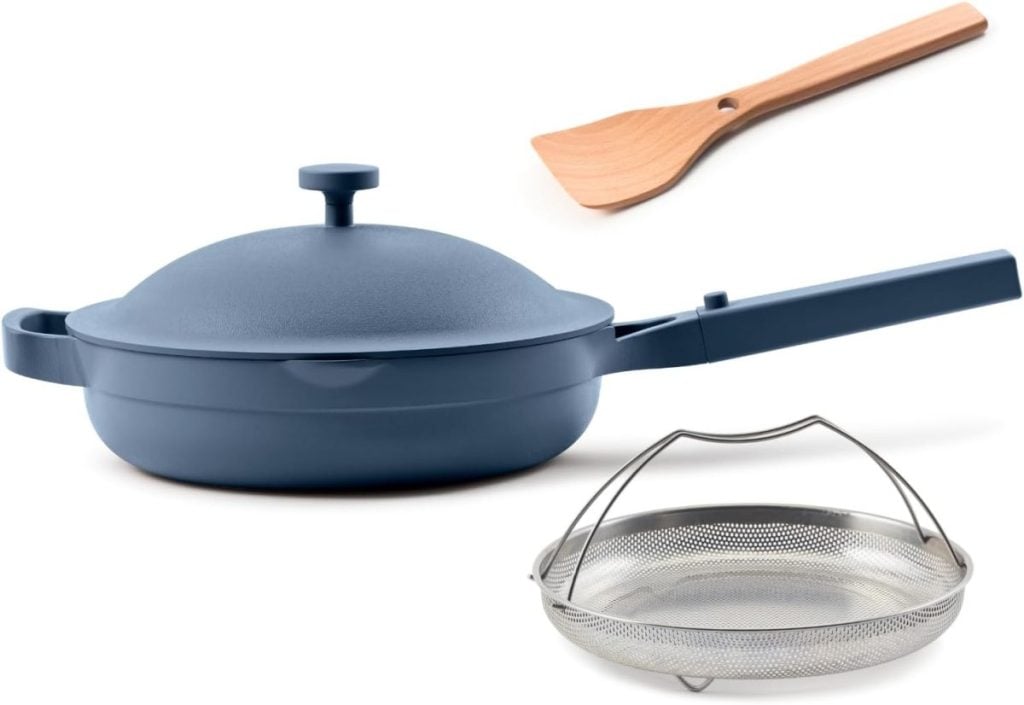
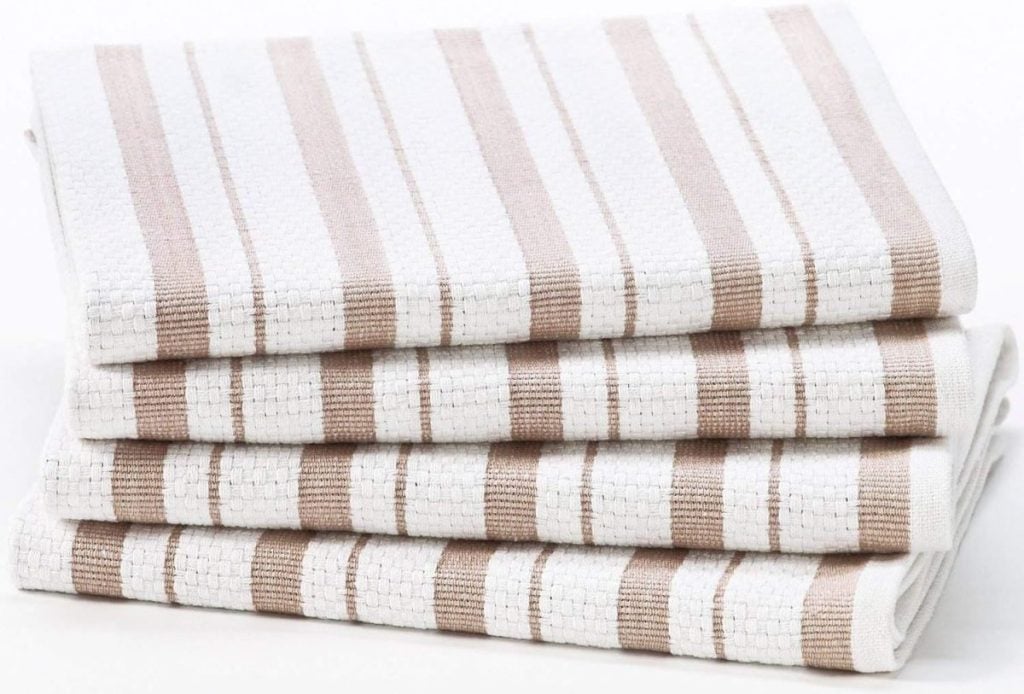
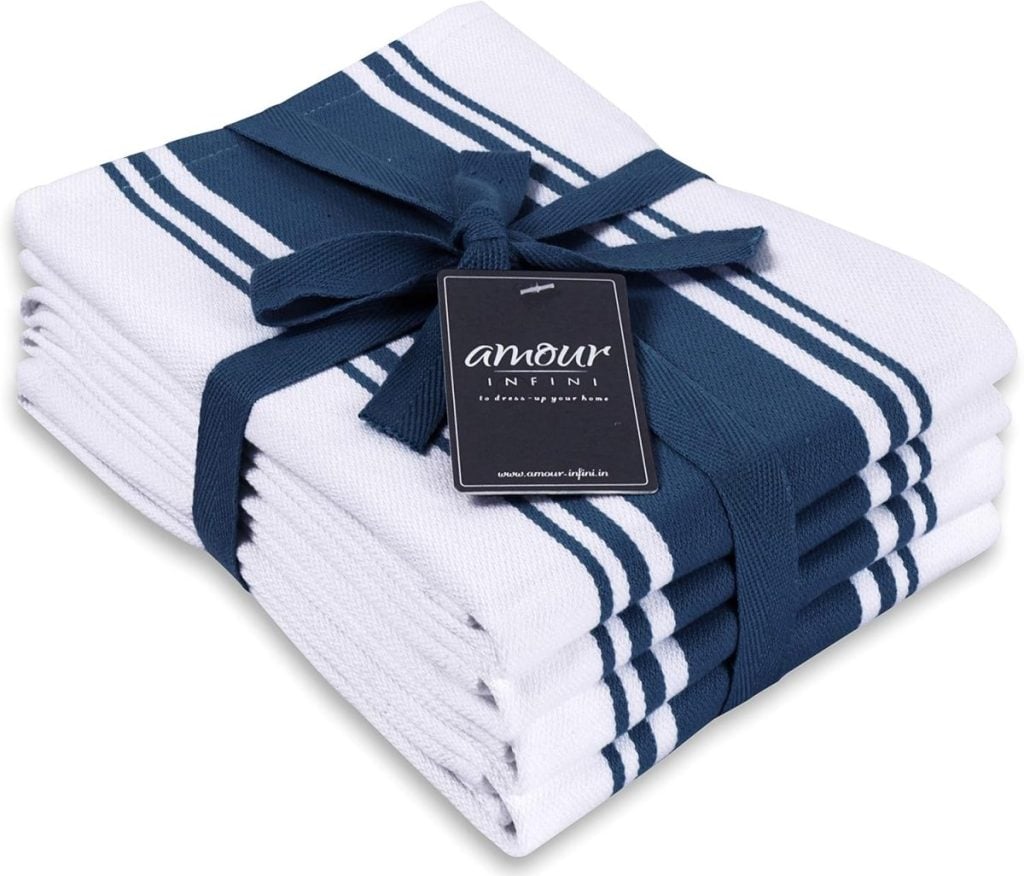
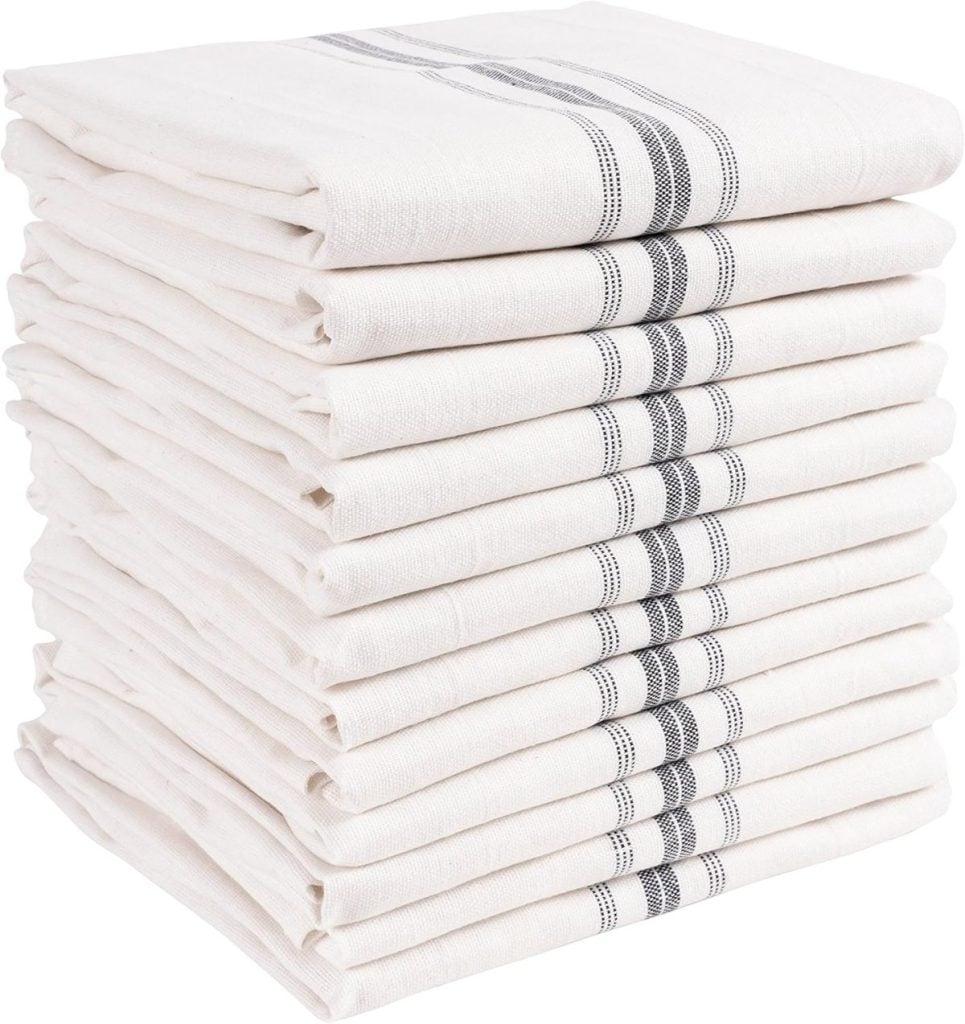
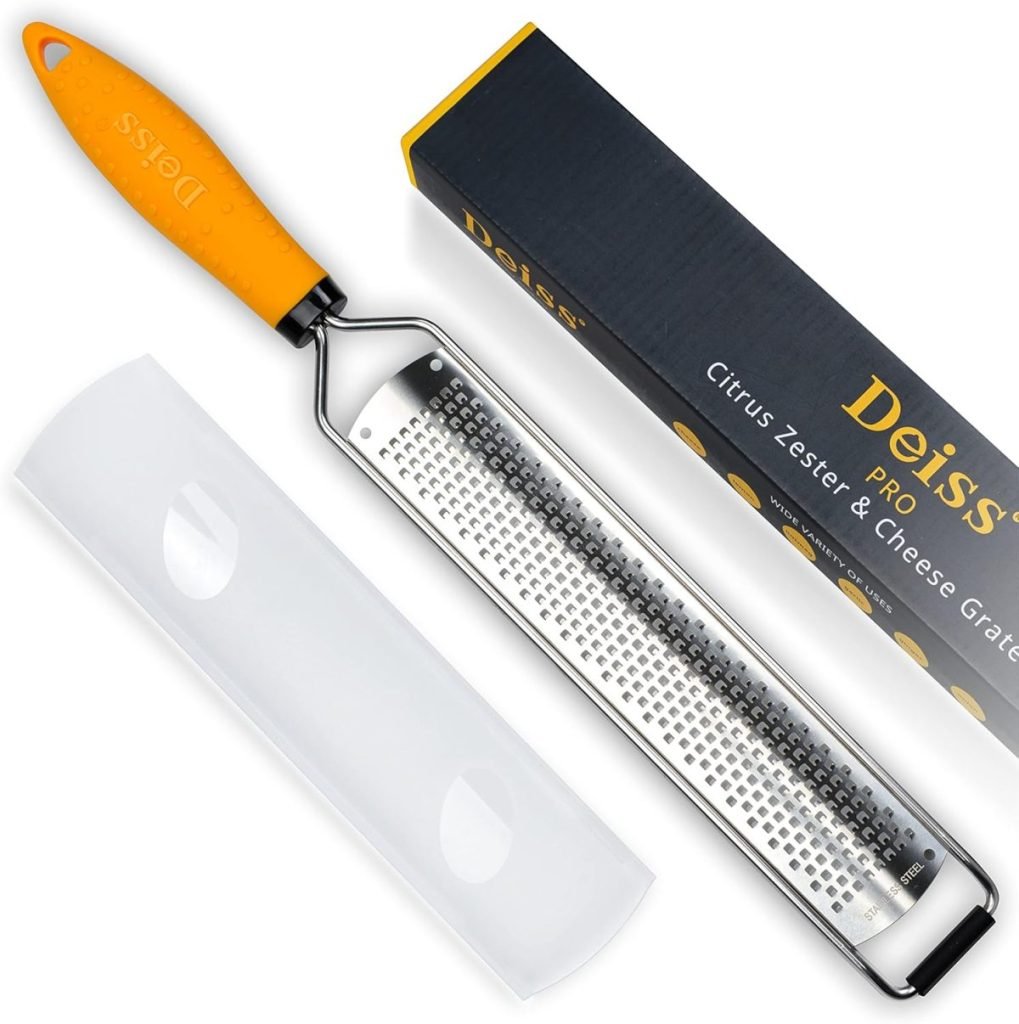
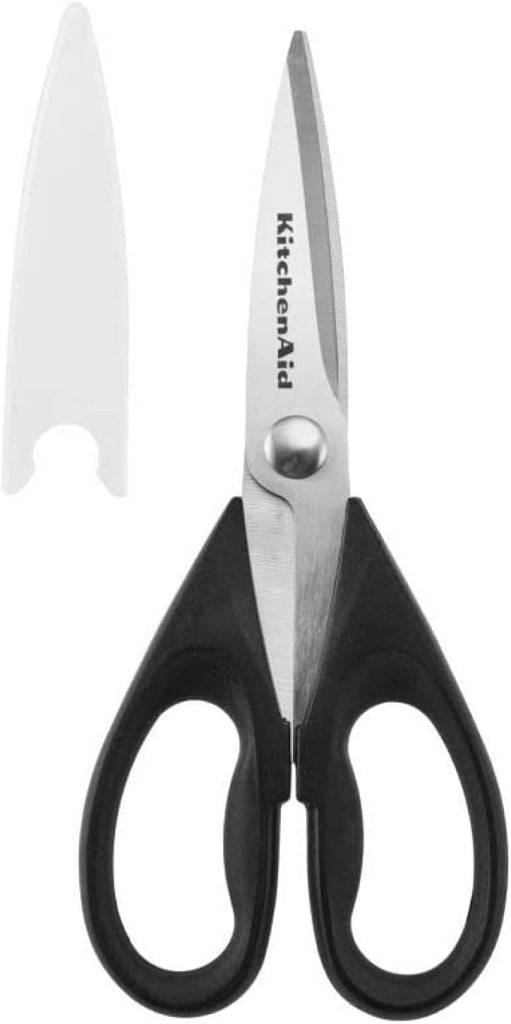
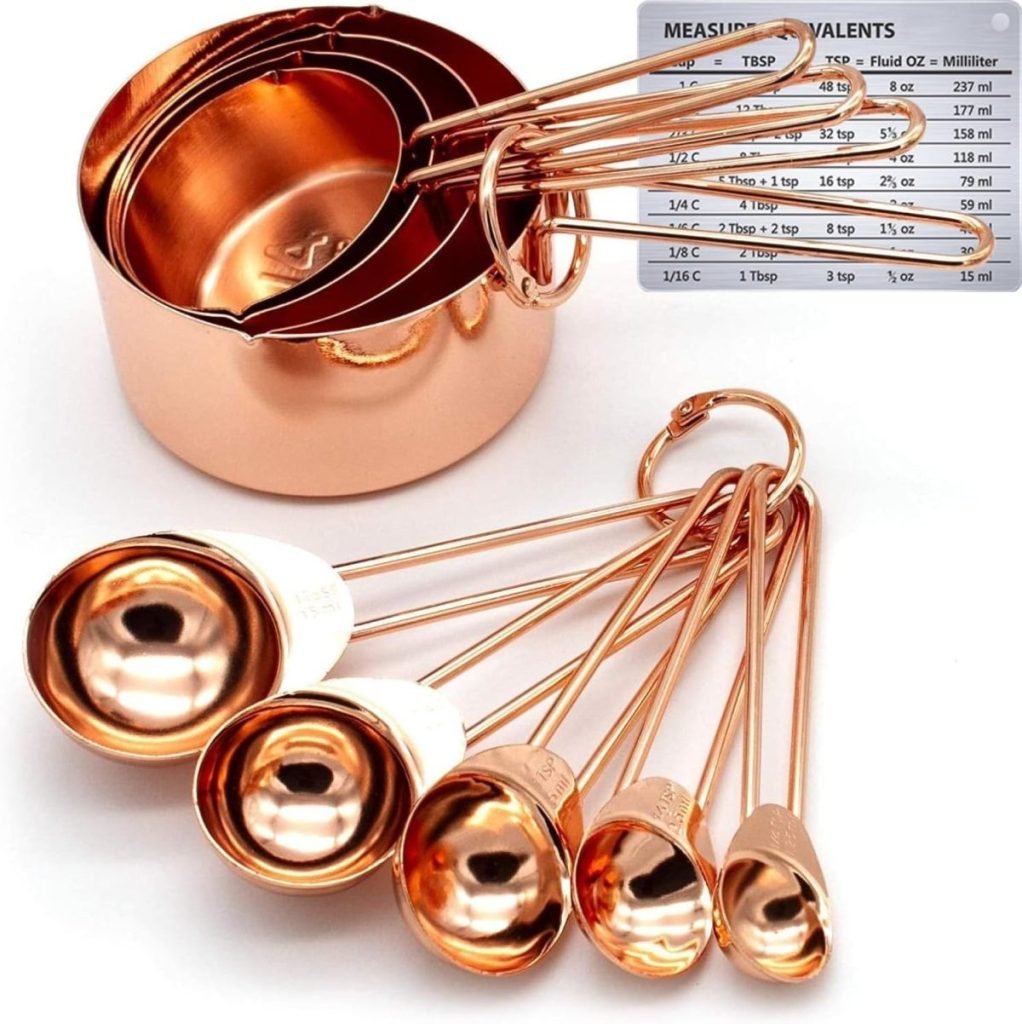
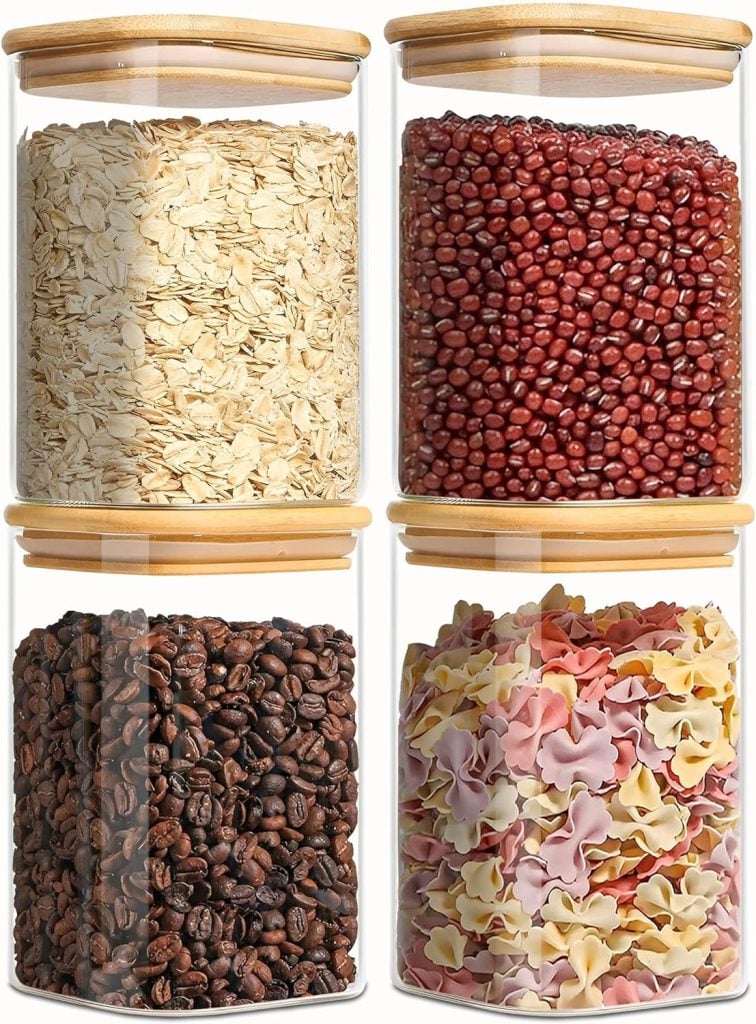
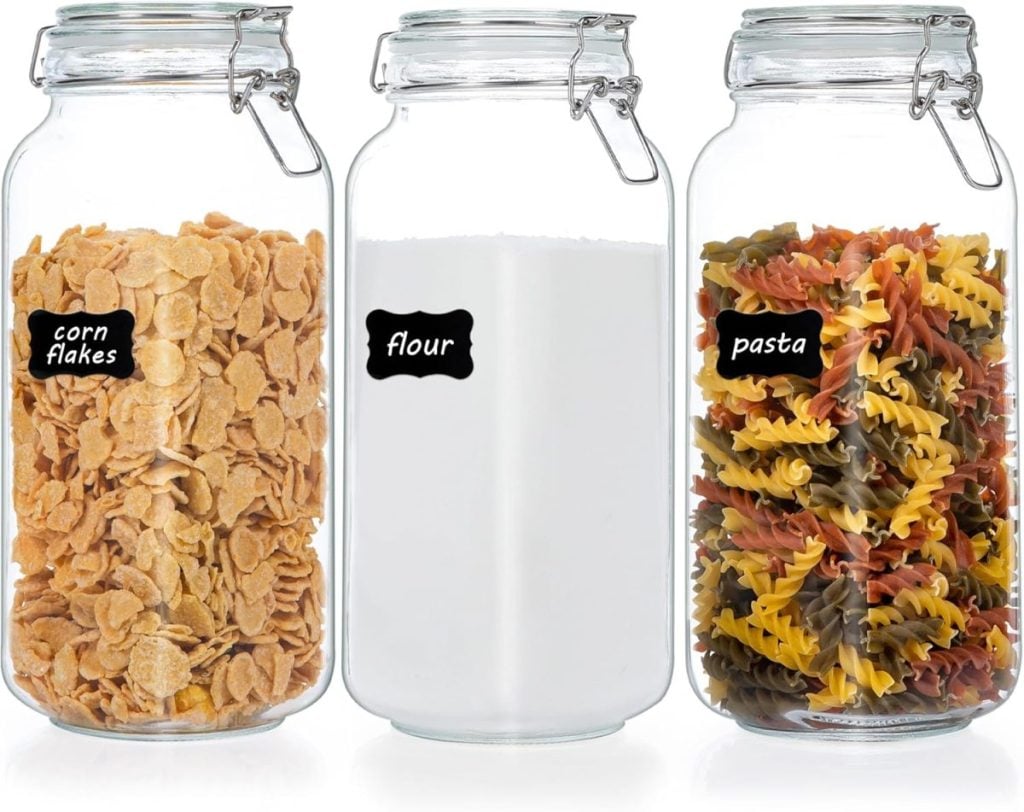
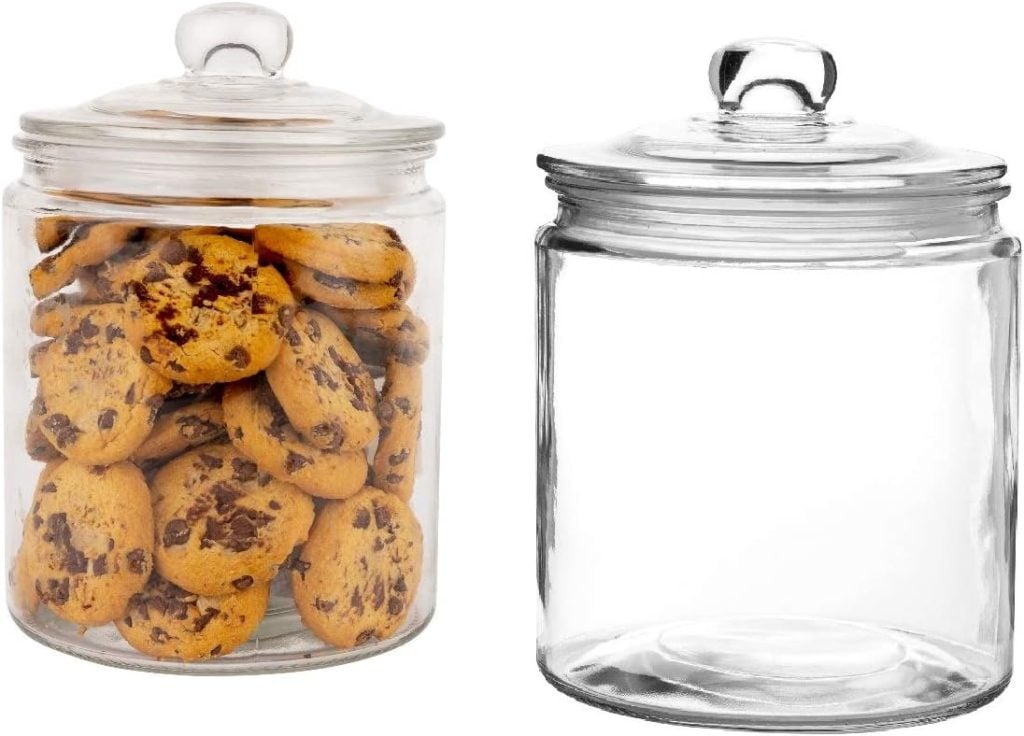
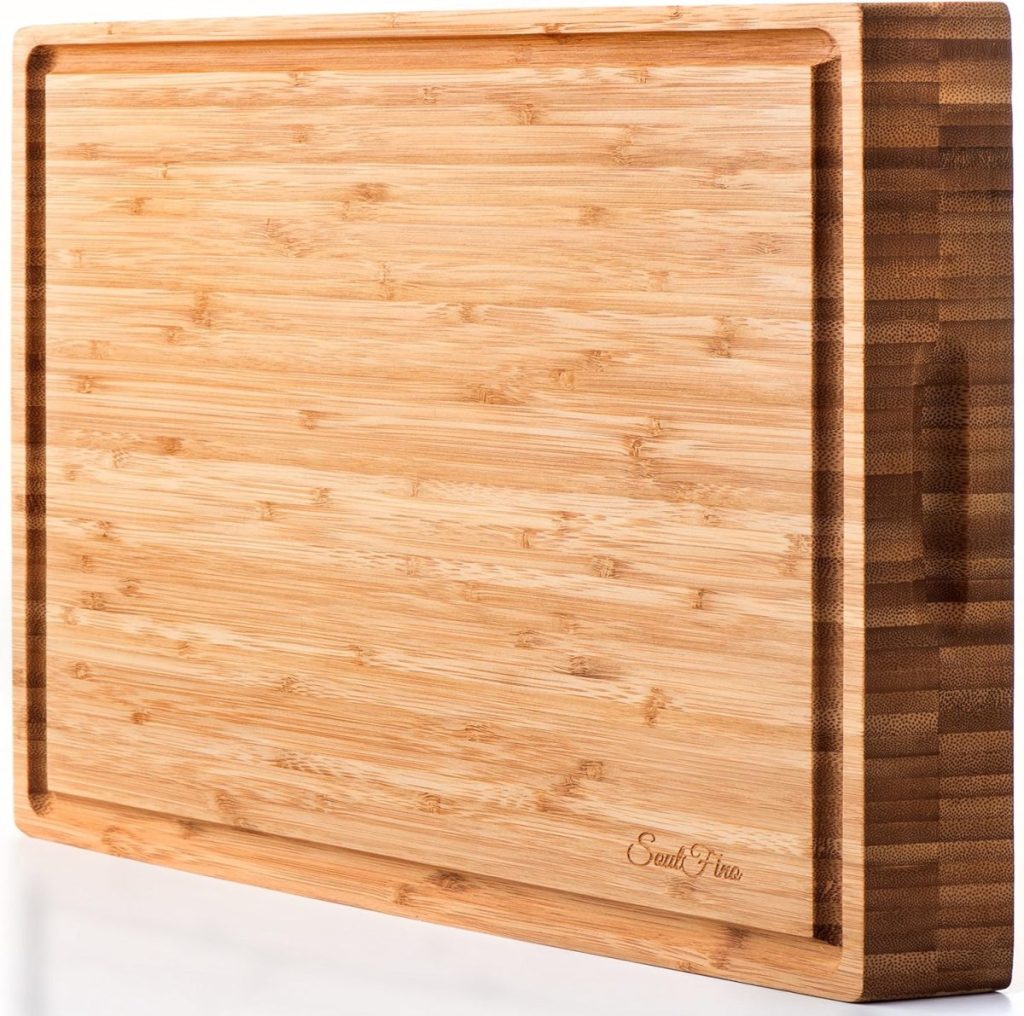
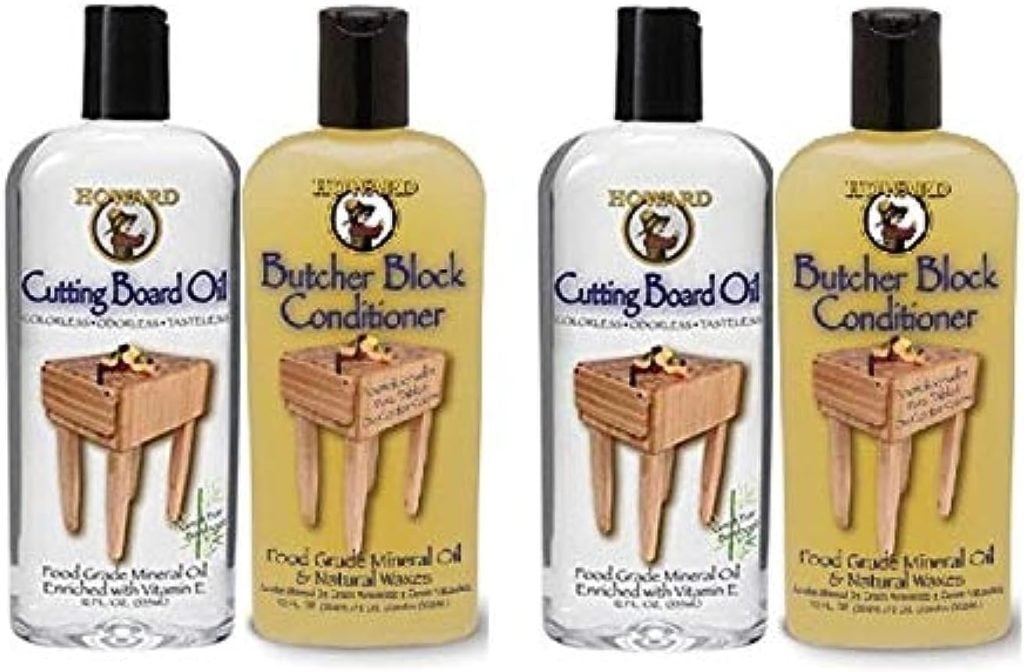
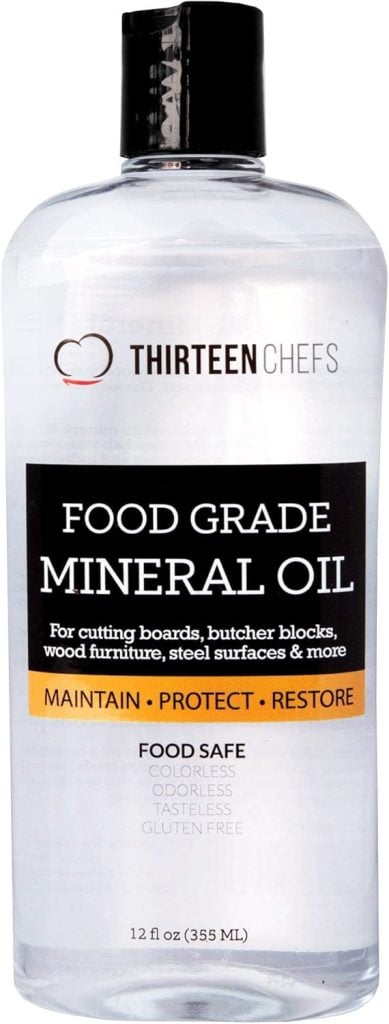
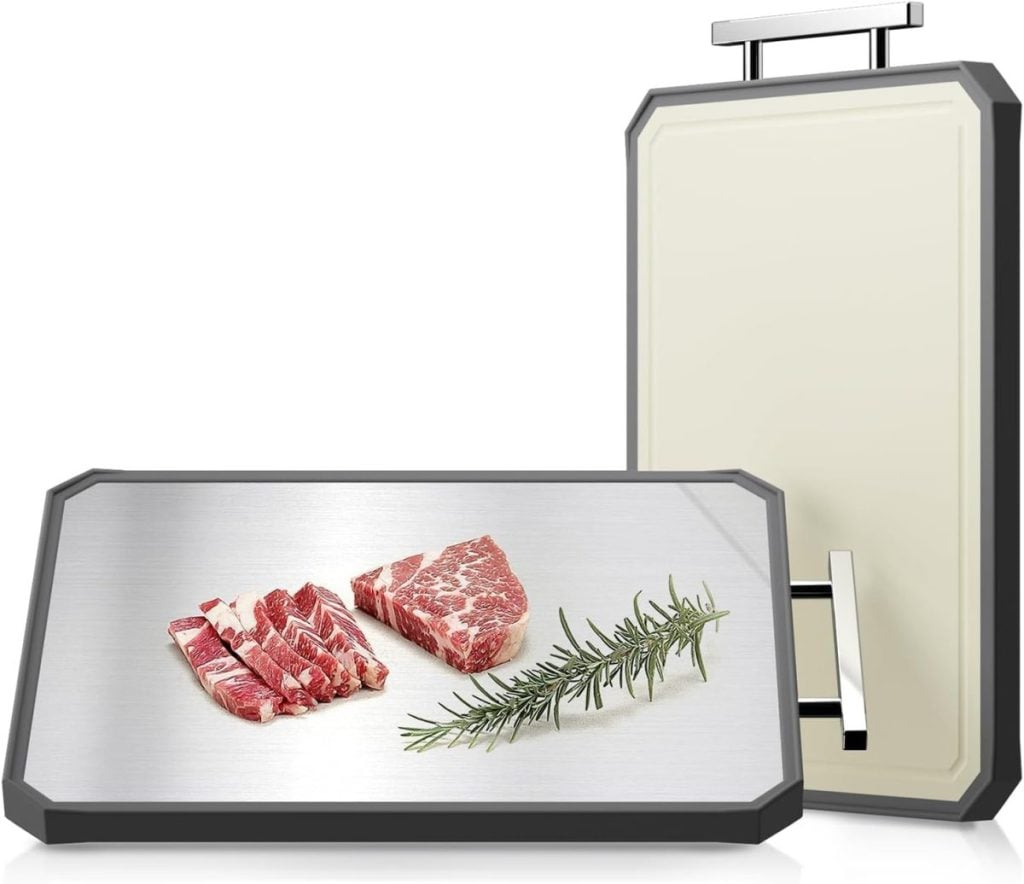
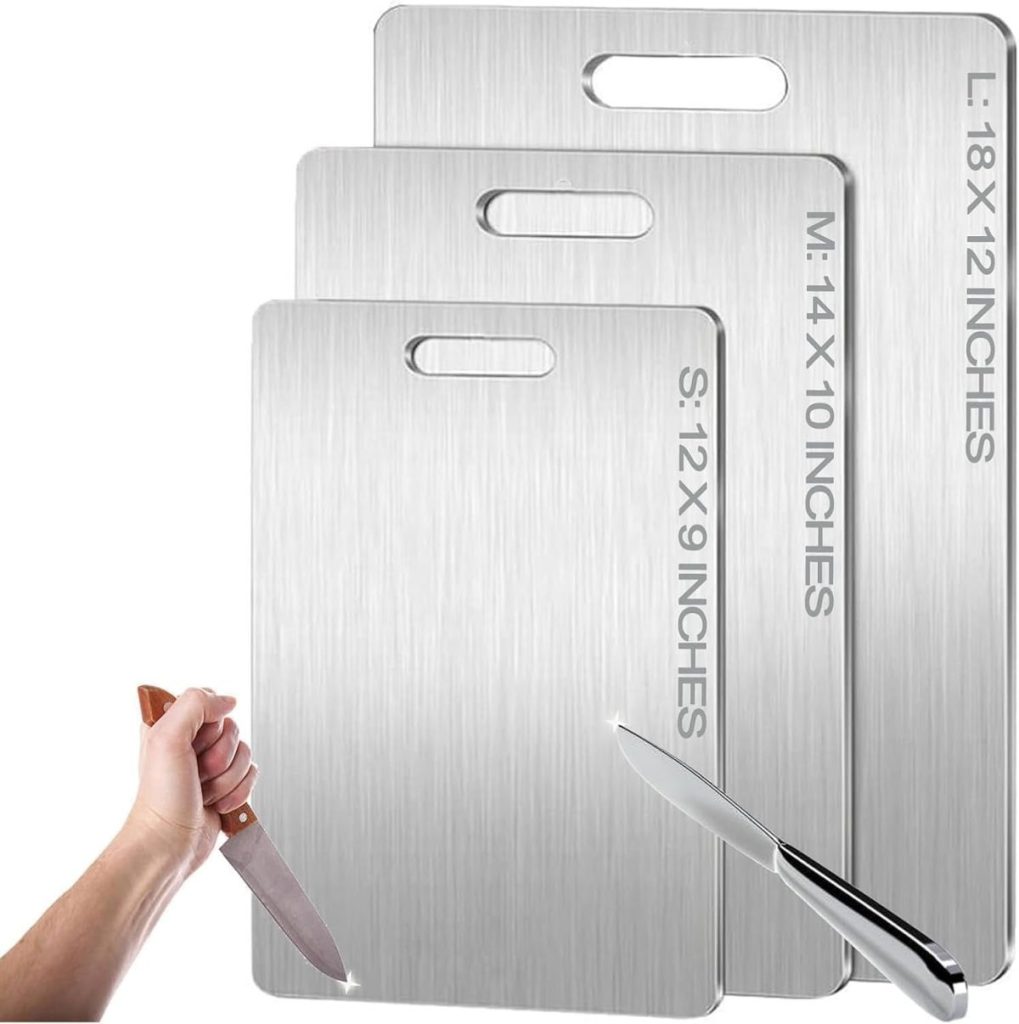
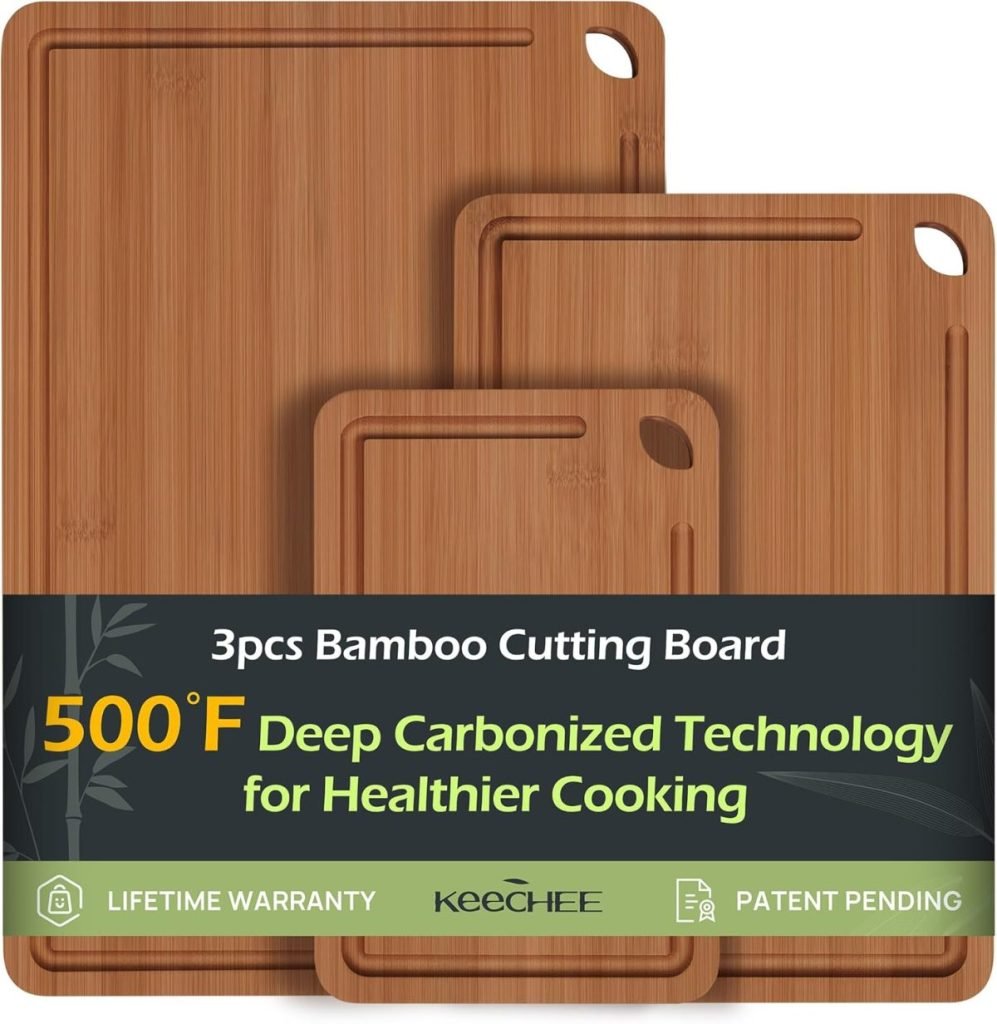
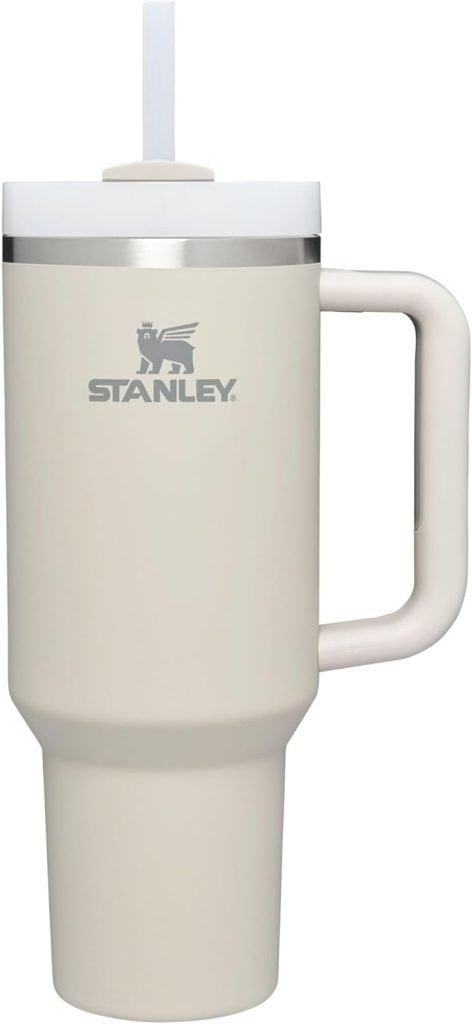

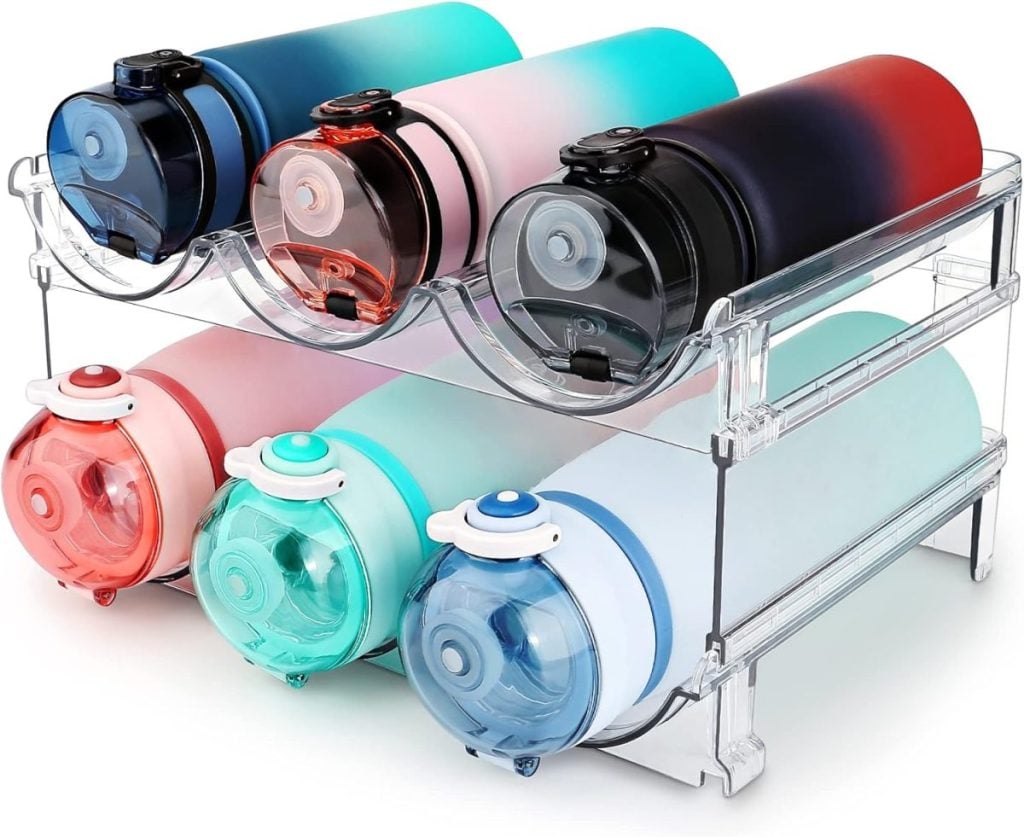
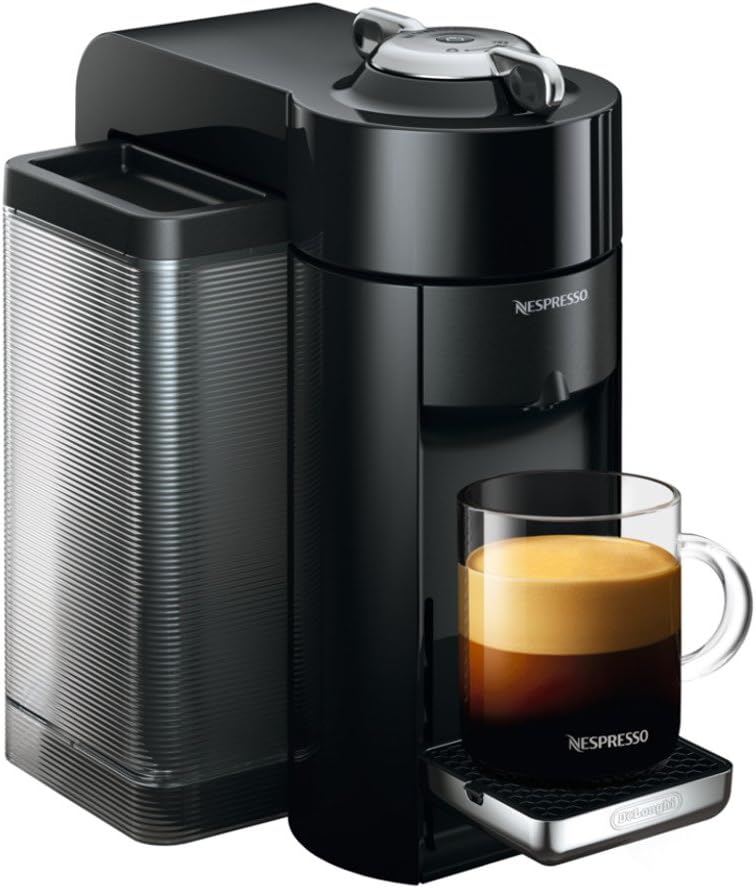
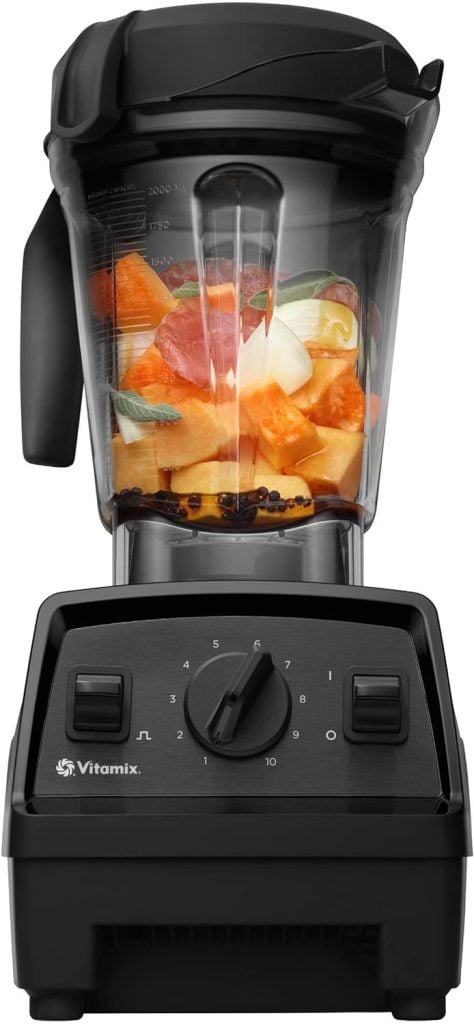
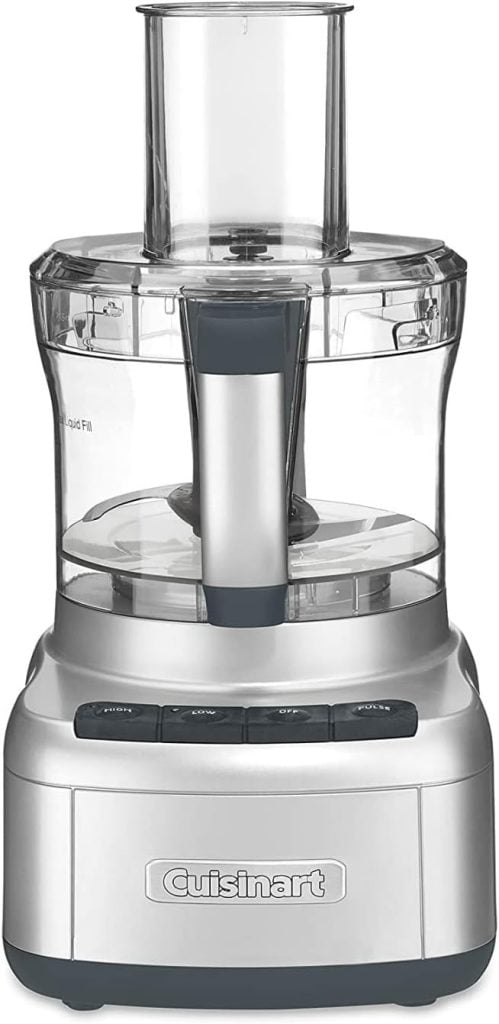
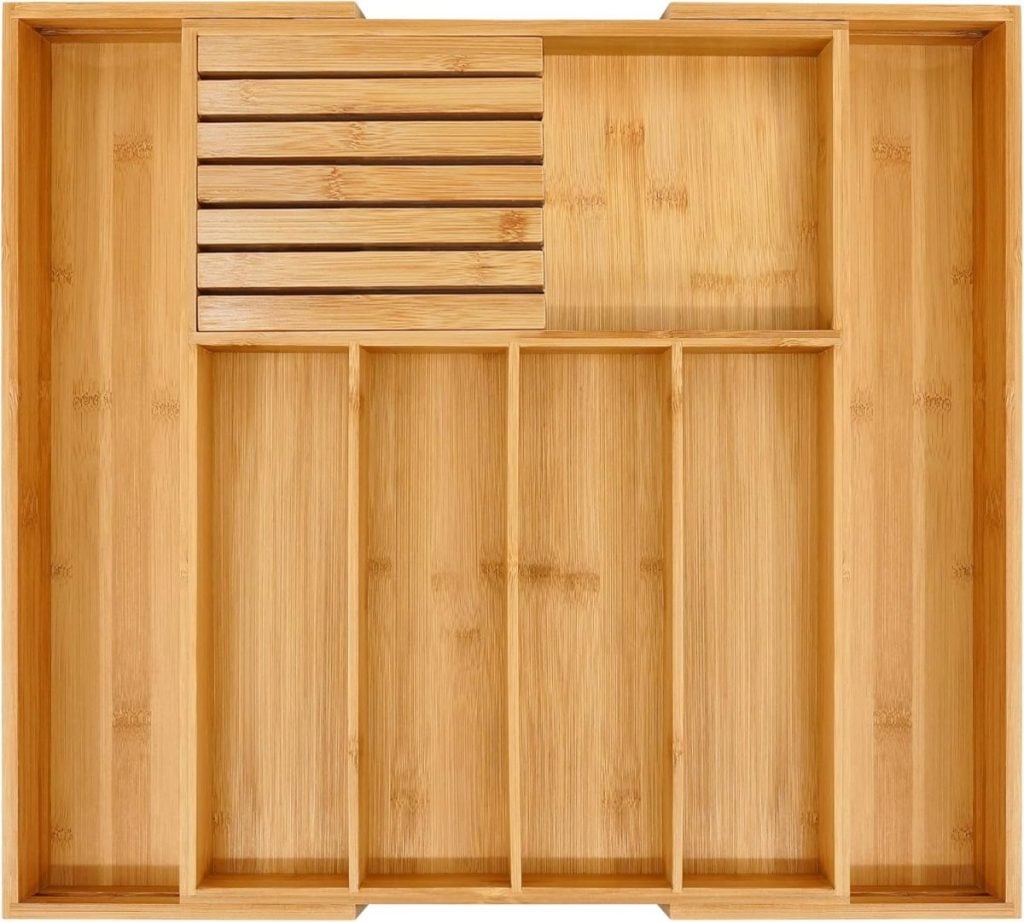
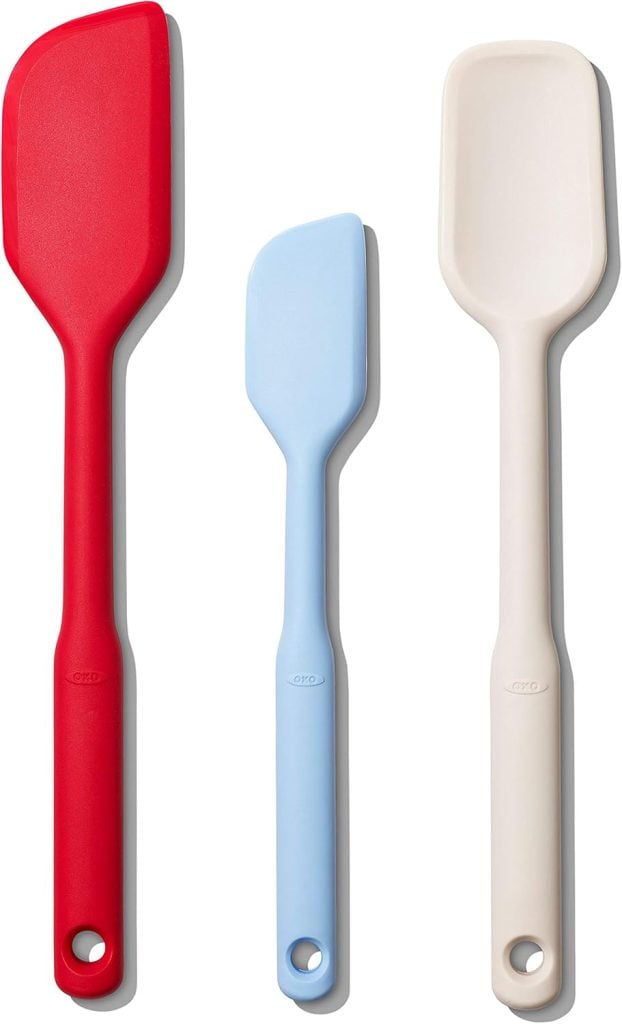
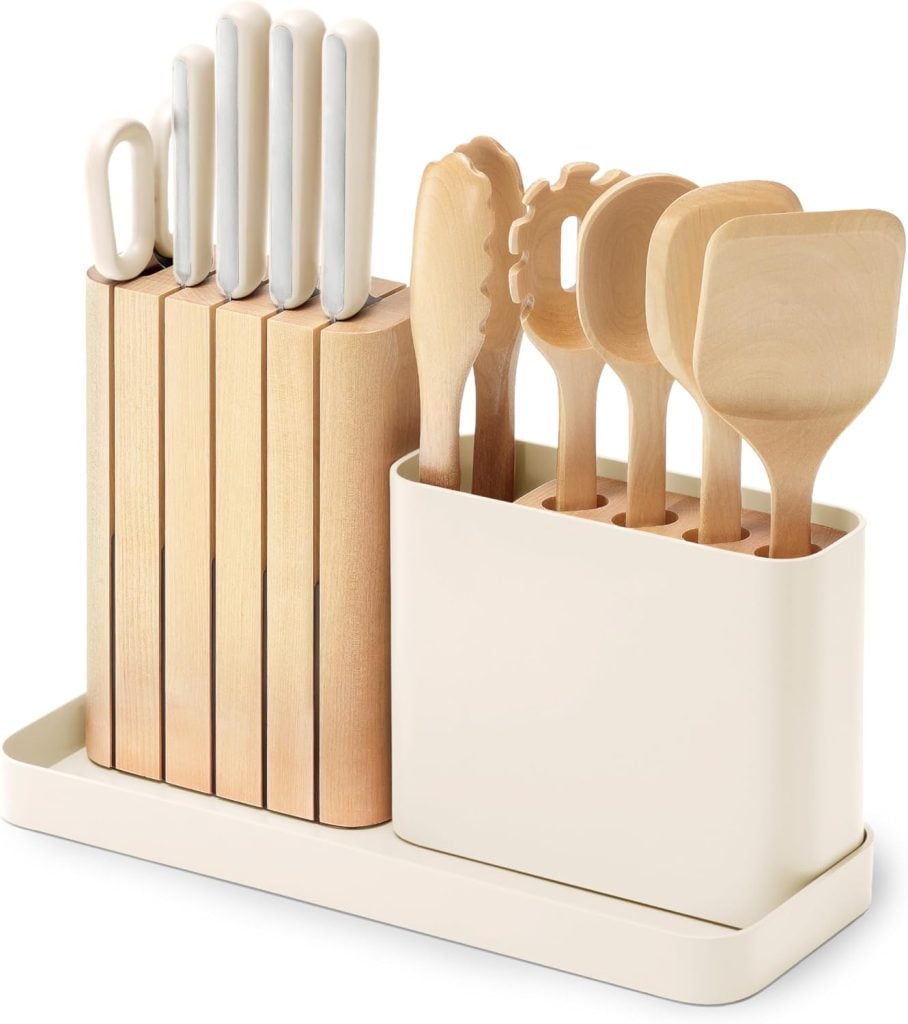
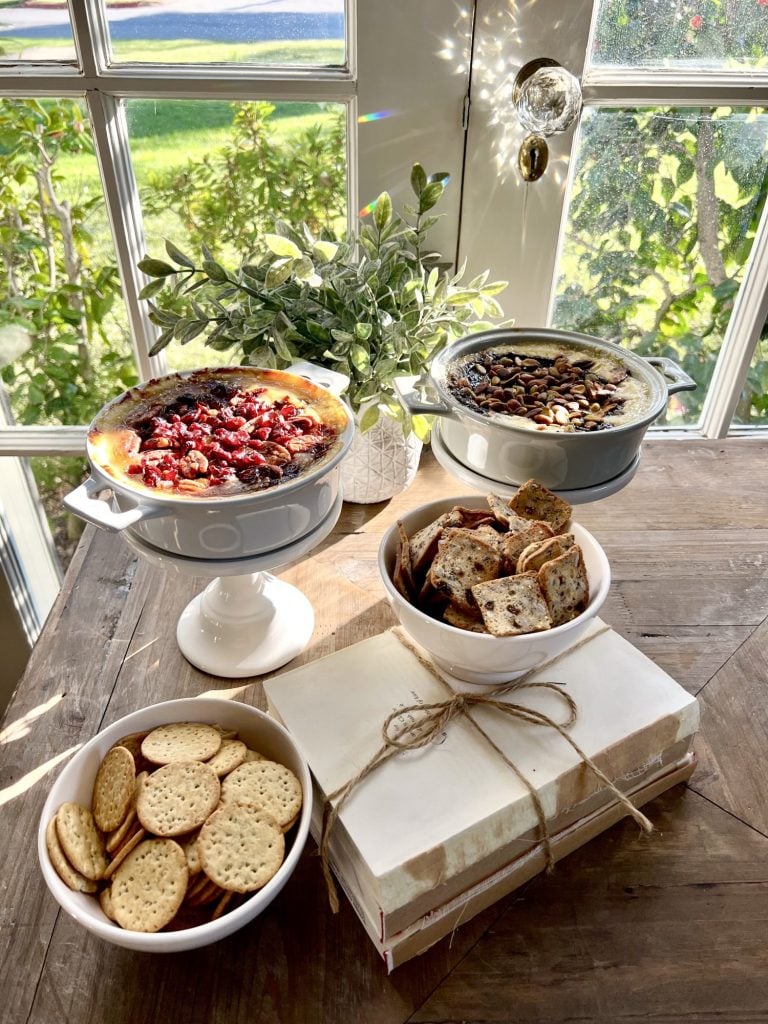
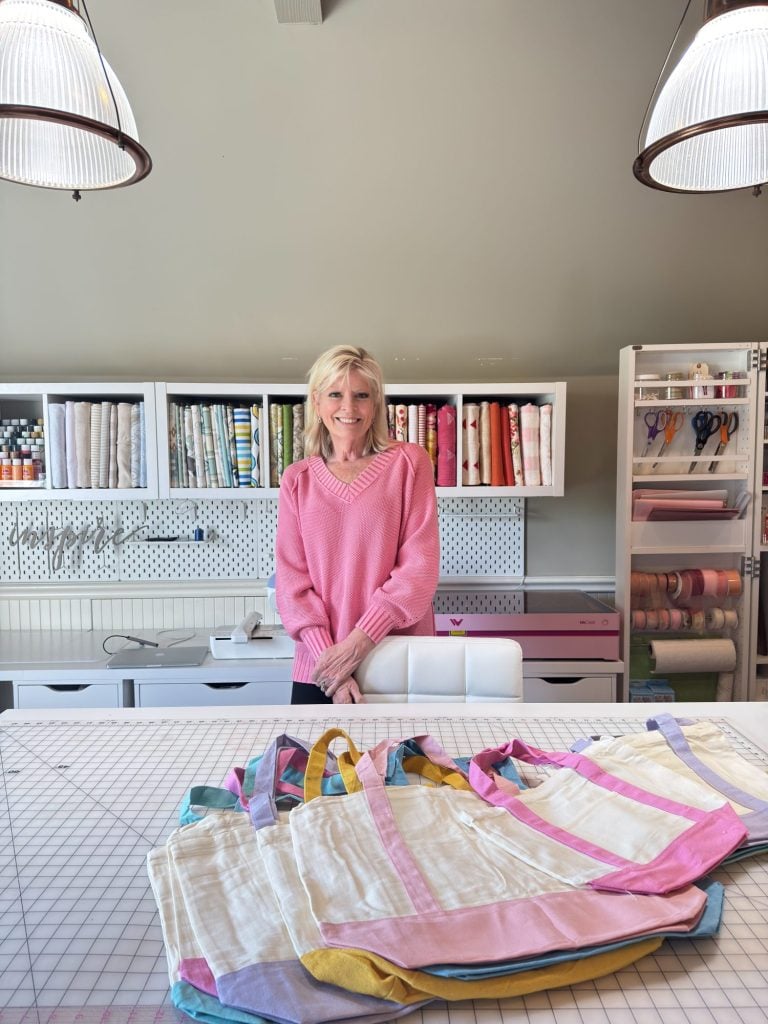
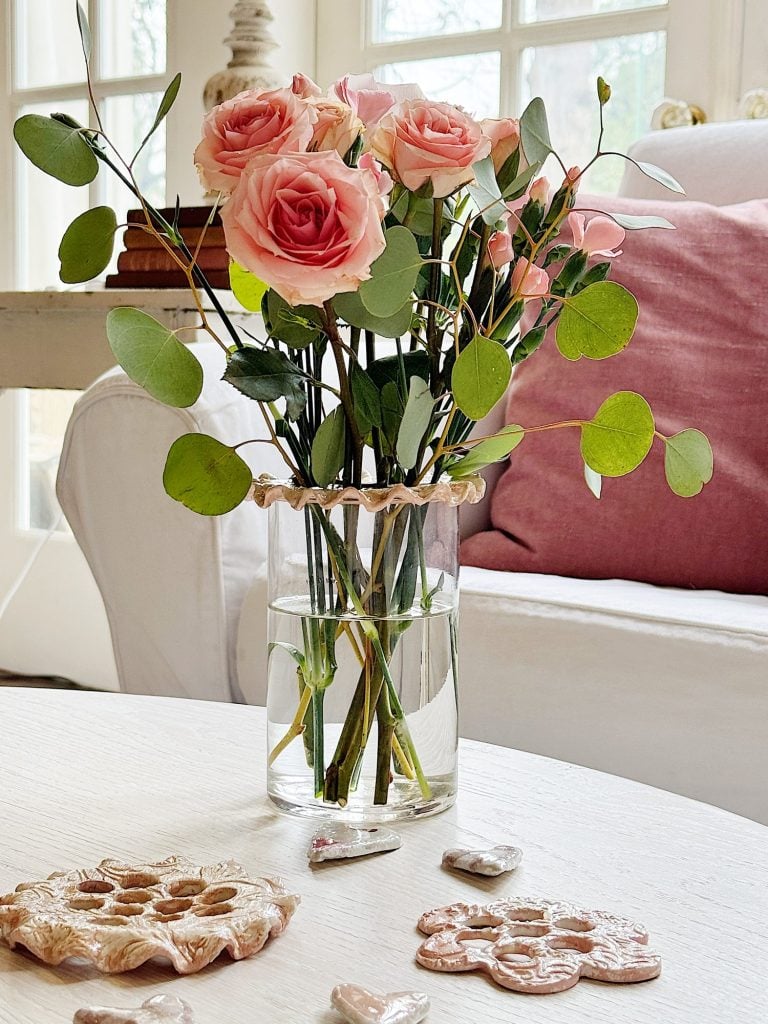
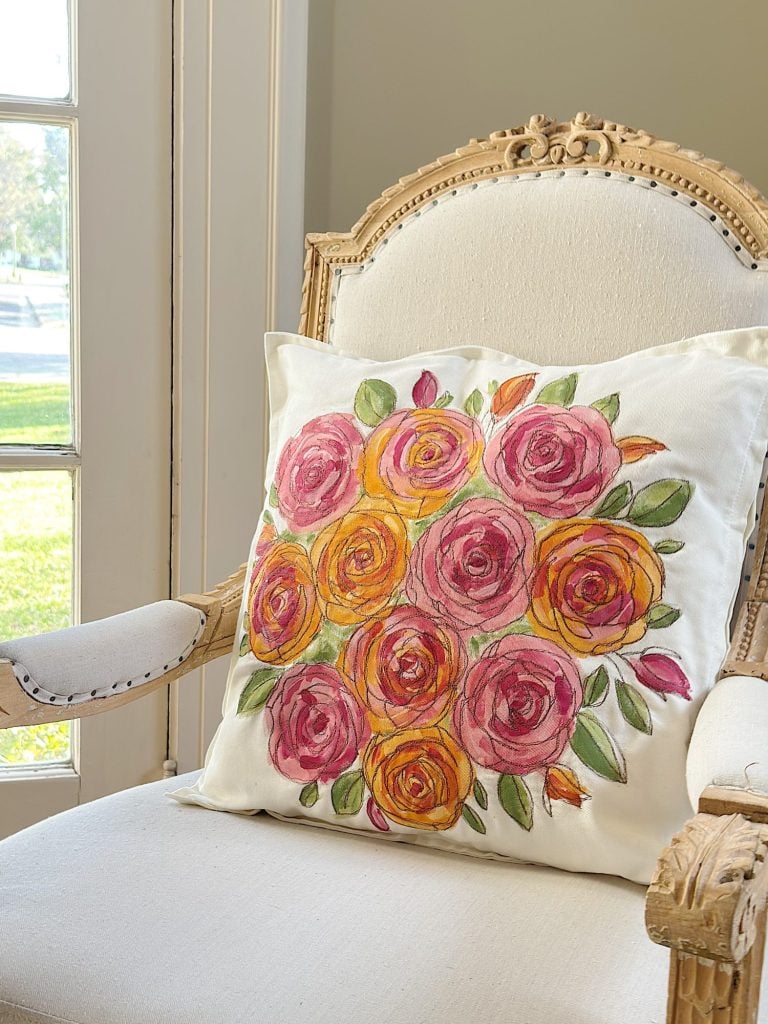

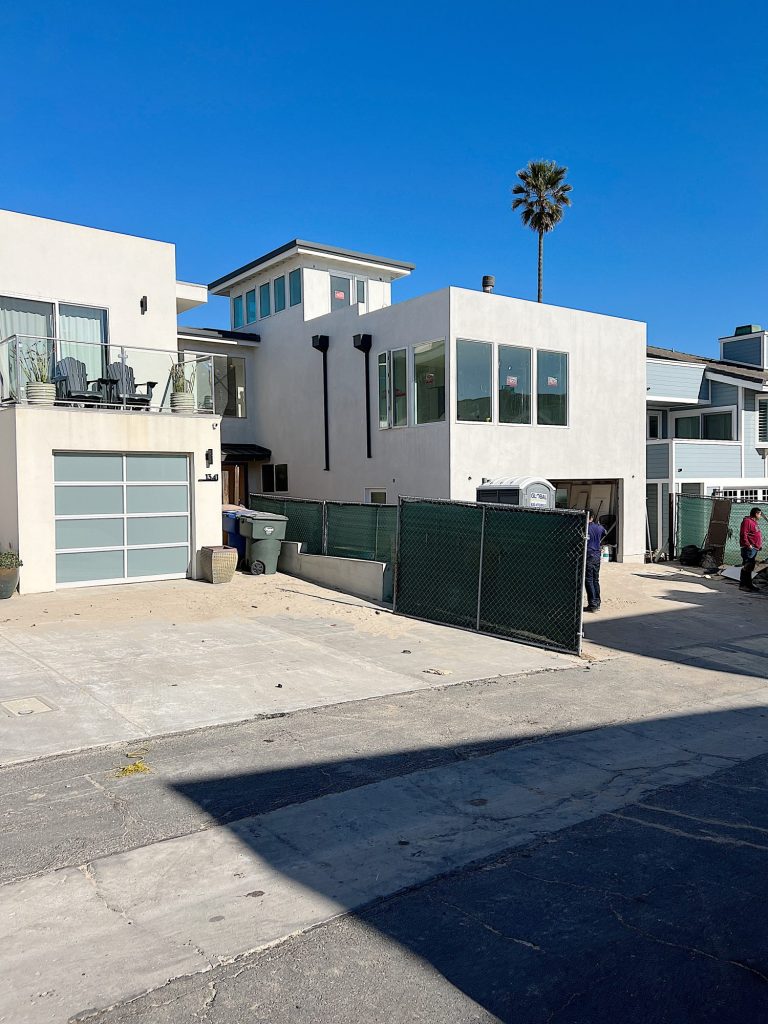
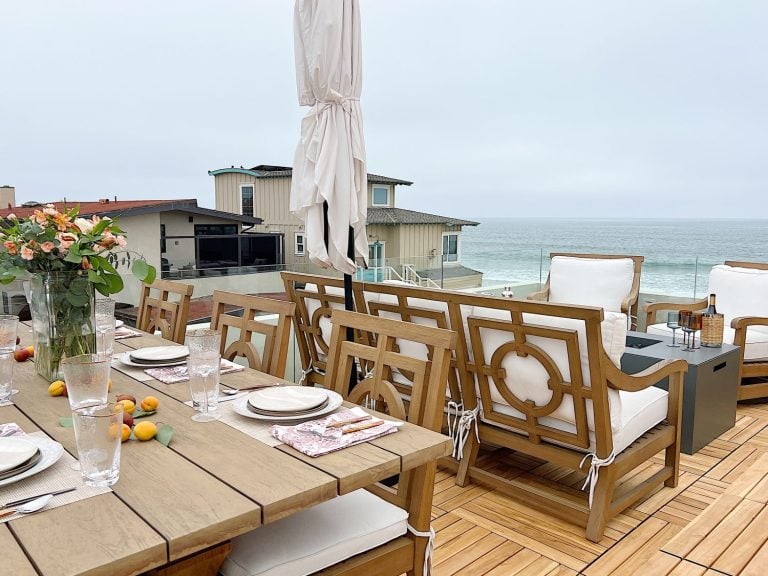

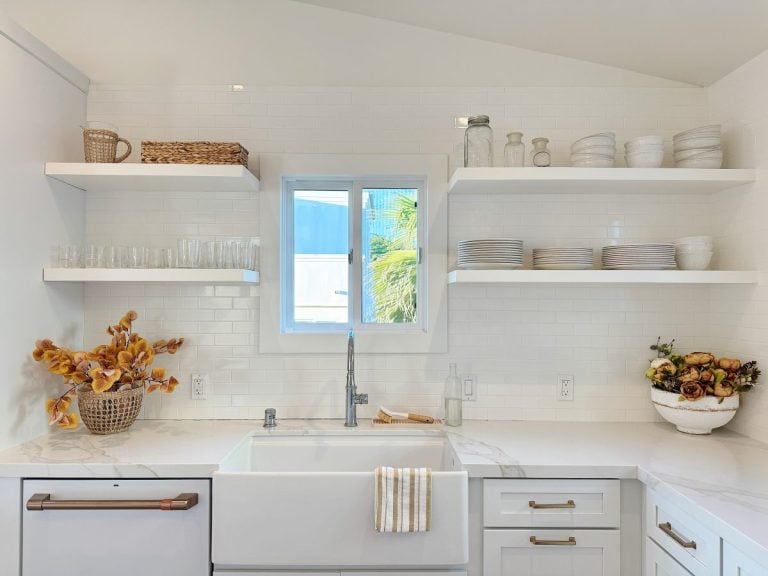







I understand decluttering but do not believe in advocating for Amazon products. Yes, some things might be beyond repair or use but lots of things can be donated and upcycled. Many people are not privileged enough to purge and rebuy. That is very obvious during my trips to donation centers/thrift stores. Besides our landfills are destroying our planet!
Oh my gosh, please make all of your own buying decisions and completely ignore my shopping recommendations. I advocate vintage items all of the time but my followers also use my blog as a resource for new items too.
L
Right there with you! We’ve been clearing things out over the last few months, and it’s amazing how old some things are! Not to mention how many plastic lids have no bowls! Thanks for the inspiration and the tips – I’m off to tackle another drawer! Happy New Year!